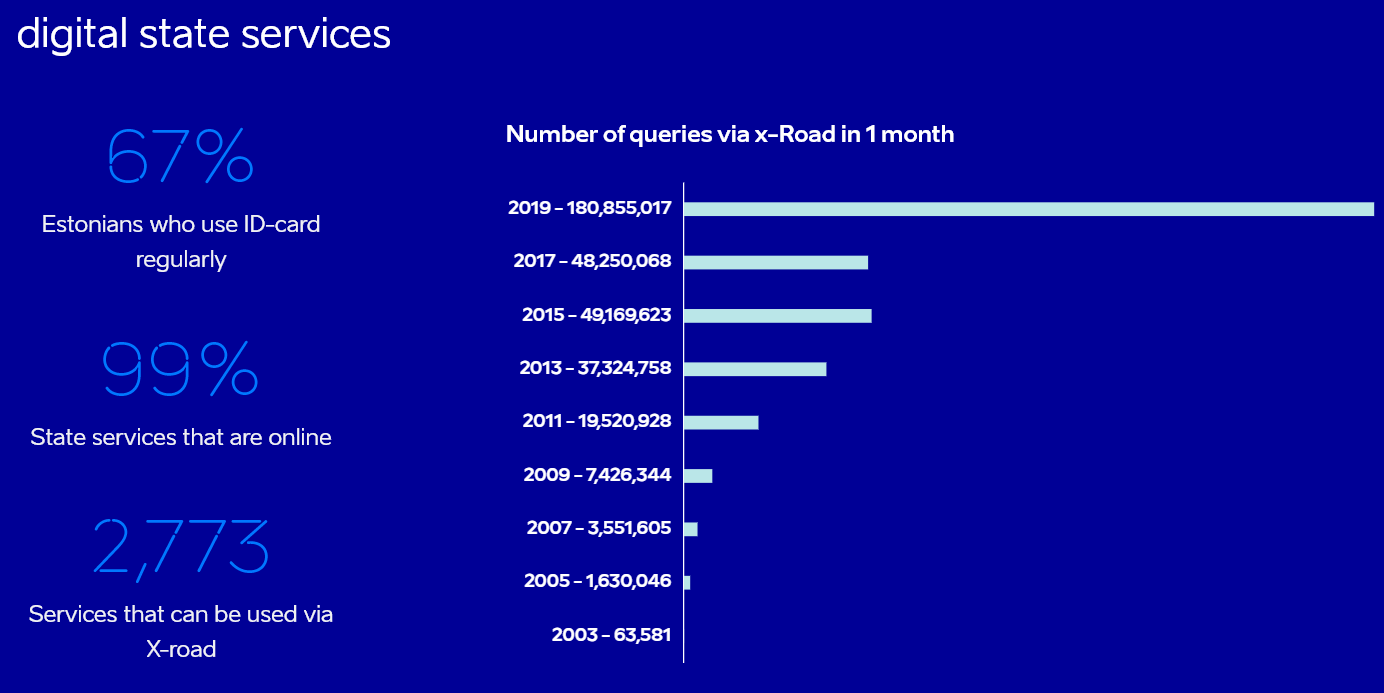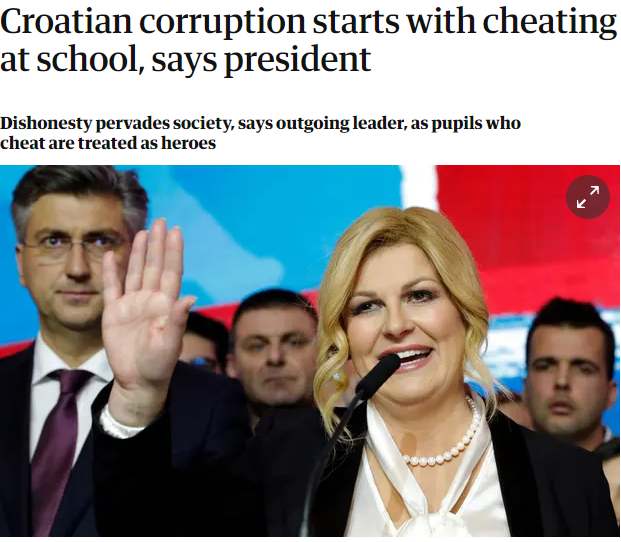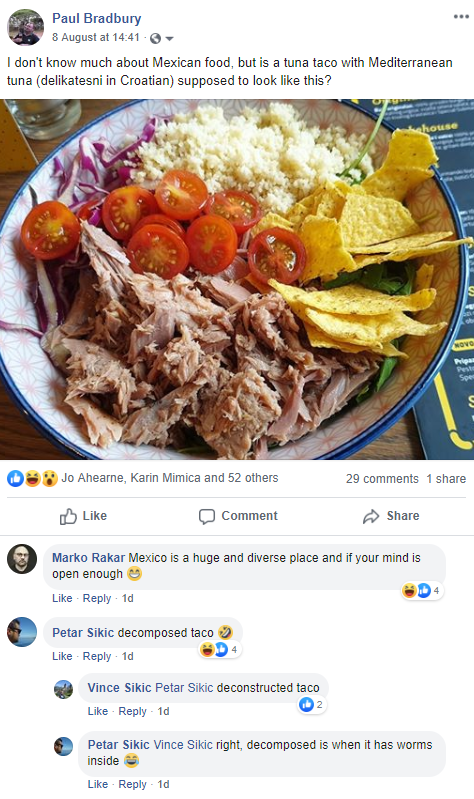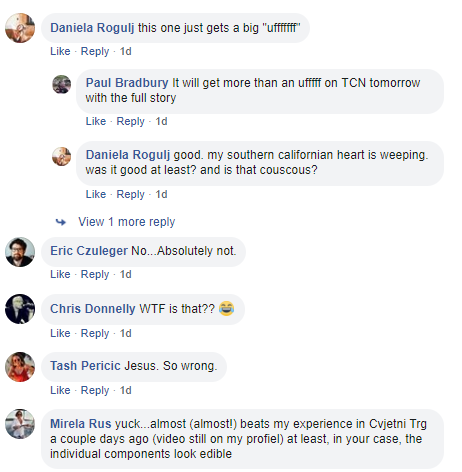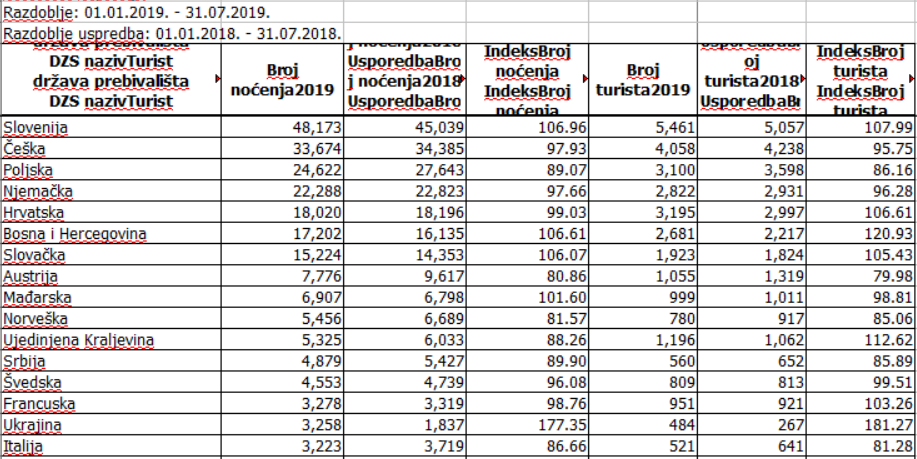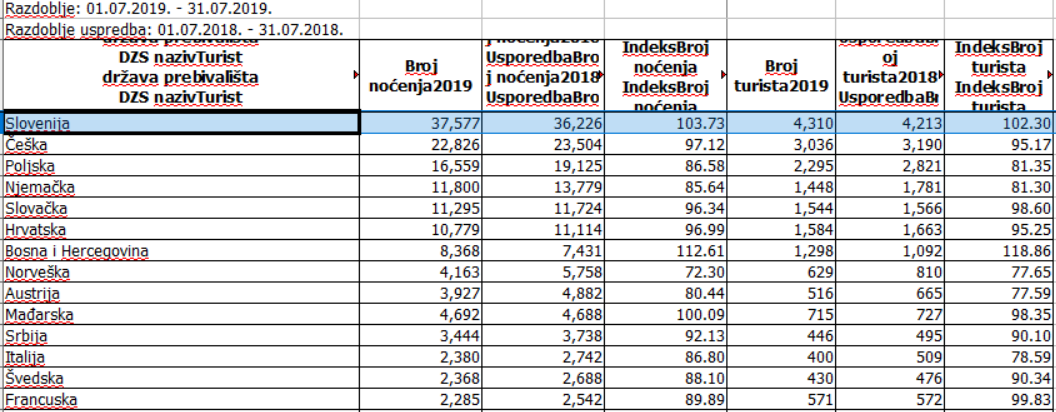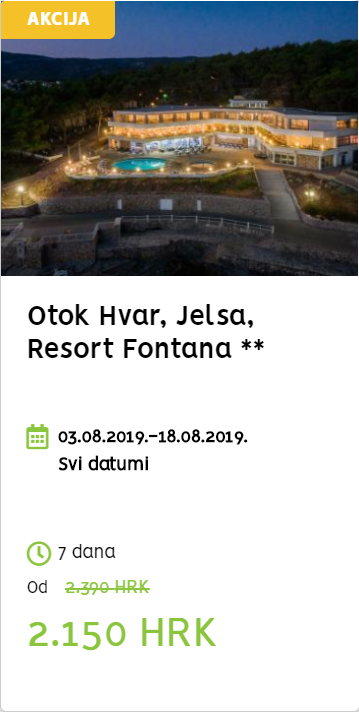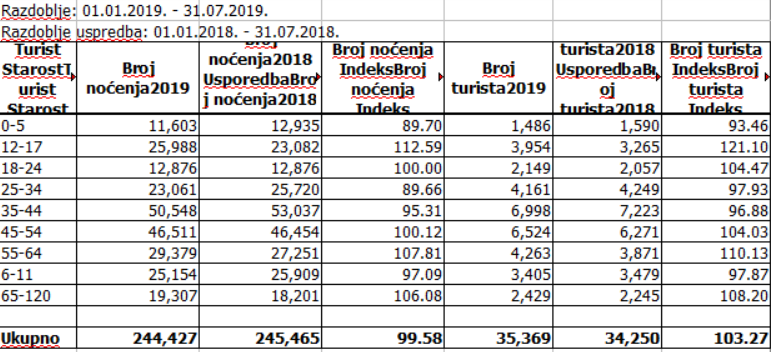Would Croatia Be Better If Its Politicians Were Not Treated as Rock Stars?
One of my favourite people in Croatia is a friend in Dalmatia who works in the adventure tourism business.
Apart from being a little jealous of the healthy lifestyle this fat Irishman can only aspire to, she also gave me one of the keys to being happy in Croatia over a beer several years ago.
"I don't follow politics here at all. It consumes you if you get sucked into it. All that negativity. Instead, I just tune out, do my thing and enjoy my friends and the beautiful nature in Croatia. Maybe after 6 months, I will check what is happening, but you know what? Despite all the noise and negativity, nothing ever changes, so why surround yourself with the negativity every day when you can enjoy life instead?"
It is one of the best pieces of advice I have ever been given in Croatia, and I find that when I follow this advice, my happiness factor in Croatia increases immeasurably.
Of course, running TCN makes it impossible not to get totally immersed in the country's politics on a regular basis, and I really do believe that there is a direct link between the default negative mindset of the majority of people in Croatia today, and the rather bizarre culture here (at least to this foreigner) of treating politicians as rock stars.
A few years ago, I wrote an article called Kindergarten Political Football: HDZ United v SDP City, in which I wrote:
Ours is one of the very few non-political households in Croatia, a country where politics seems to be discussed more than any of the 95 countries I have visited. The political theme starts early in life, something I was reminded of this week when my youngest daughter, aged just 7, came home from school and mentioned a friend 'who was HDZ' and another 'who was SDP' (things I also heard at kindergarten). She had no idea what SDP or HDZ actually were, but it seems that many of her peers had adopted their political football team for life, in addition to Hajduk on the pitch.
My older daughter, 9, saw the ridiculous video from the Josipovic campaign, declaring the former president to be very silly in the video. I asked her to name any politicians she could recognise, knowing that the average adult British worker could probably name and recognise no more than half a dozen, and a 9 year-old hardly any.
Starting with the mayors, we had Milan Bandic (Zagreb), Ivo Baldasar (Split) and Niksa Peronja (Jelsa), former president Josipovic, former prime ministers Sanadar and Kosor, current players Milanovic, Karamarko, Petrov and Kolinda. "Oh and that new guy from Canada, who calls us citizens buildings" - a reference to a linguistic slip by new Prime Minister Tim Oreskovic.
This is a child growing up in a household with no political affiliation, no political discussions at the dinner table, and no interest in politics whatsoever. Imagine what the kids in more partisan households are going through.
Back in the UK when I lived there, it was common to see the Prime Minister in the media on an almost daily basis, other ministers too on occasion when their department was in focus. But unless a minister was caught texting little boys or a Tory MP found with an orange up his bottom, the media presence was minuscule compared to what happens here in Croatia.
In Croatia, political stories and scandals are the top stories of the day more often than not, the politicians are elevated to the level of rock stars personalities (even though several seem devoid of a personality at all). Great drama is attached to the most minor of incidents, which are then quickly forgotten in search of the next non-story to grip the nation.
The office of the Croatian President is a case in point. In terms of PR, the last five years have consumed a huge amount of media space, as the Kolinda PR machine was rolled out, with photo opportunities at every point (with the notable exception of the opening of Rijeka as the European Capital City of Culture in her home town last weekend). So many speeches, so many promises, so much hot air. And at the end, what did Kolinda actually achieve in those five years? As far as I can see, not much more than one thing.
She became the first Croatian to touch the World Cup.
I, like many people, have followed the dramas of the Kolinda Presidency over the last five years. My healthy adventure tourism friend has done the opposite. And what actually changed?
Absolutely nothing. But while I was sucked into the spiral of negativity, she was hiking on Biokovo.
It doesn't take a genius to figure out which of us is the smarter one.
So too with the recent presidential elections. Two candidates that many could not bear to vote for, but there was no other choice. The lesser of two evils was a phrase which was associated with the second round. And even though the post of President is largely ceremonial, with two unattractive choices, it consumed the nation for weeks.
But not my friend, as she kayaked from Split to Hvar on a perfect winter day.
The obsession with politics might actually have a point if something were to actually change, but with mindsets so entrenched, have you ever come across a political opinion that was changed by Croatia's vast army of keyboard warriors?
Croatia treats its politicians like rock stars. They are anything but.
So why not choose life? Why not choose happiness? Disengage and ignore and focus on friends and nature instead.
It makes for a much better way of life in Croatia.
And who knows, if enough people do, then perhaps the media moguls will take note and we can focus on some real news, perhaps even with a hint of positivity on occasion.
Now, where are my hiking boots?
If you cannot keep away from Croatian politics, get your fill in the TCN politics section.
Finally! A Croatian Tourism Conference to Bring Change, Progress, Cooperation
Croatia seems to have more conferences than most countries, some more useful than others. A fabulous addition for 2020, however, a new Croatian tourism initiative which should bring about dialogue, cooperation and change. Why One Day or Day One #hrturizam2030 is different and deserves your support.
A few months ago, I finally accepted a longstanding invitation from a chap called Goran Rihelj to visit him in Vinkovci in eastern Croatia. Until I first met Goran, I had never heard of Vinkovci and I was astonished to learn that it was the oldest continuously inhabited town in Europe, dating back 8,300 years (there is plenty to learn about this amazing town - here is a taster from my trip). In case there was any danger that I might forget the fact, each of Goran's emails were signed off with a greeting from the oldest continuously inhabited town in Europe.
Goran is well-known in Croatia as the man behind the biggest and best tourism portal in Croatia, HR Turizam, an impartial B2B platform which does a great service to Croatia's tourism industry, even its the industry stakeholders do not recognise the quality and importance of his work as they should. He is a man with a vision of how things should be, with a quiet determination to see things through. Having put Vinkovci very firmly on the map, his most notable achievement last year was to move the entire tourism industry from a sexy destination on the coast to multiple locations in Slavonia and eastern Croatia for the annual Days of Croatian Tourism awards.
When Goran first mentioned the idea on his portal, there was derision in certain quarters from conversations I had. There was no way that Slavonia could stage such an event, and the coast was a much more attractive venue for tourism officials to party at the end of the season. But Goran did not give up, and slowly his campaign got traction, and then the official announcement - Days of Croatian Tourism 2019 was to be held in Slavonia! It was a really good few days, and eastern Croatia put on a really good show, especially Osijek, and I lost count of the number of tourism officials who were not only on their first visit, but also astonished by the quality of the offer. It was a very important step of progress for tourism in eastern Croatia.
And so there we were, sitting at Goran's dining table in the oldest continuously inhabited town in Europe with his lovely wife Mirjam, discussing the problems of Croatian tourism, the potential, the dysfunctionality of the relationship between the public and the private sector.
"Why don't we organise a conference? Cal lit something like Croatian Tourism Beyond Bullsh*t, a 2030 Vision?" I ventured. "Get the stakeholders together and talk about the real issues."
We laughed.
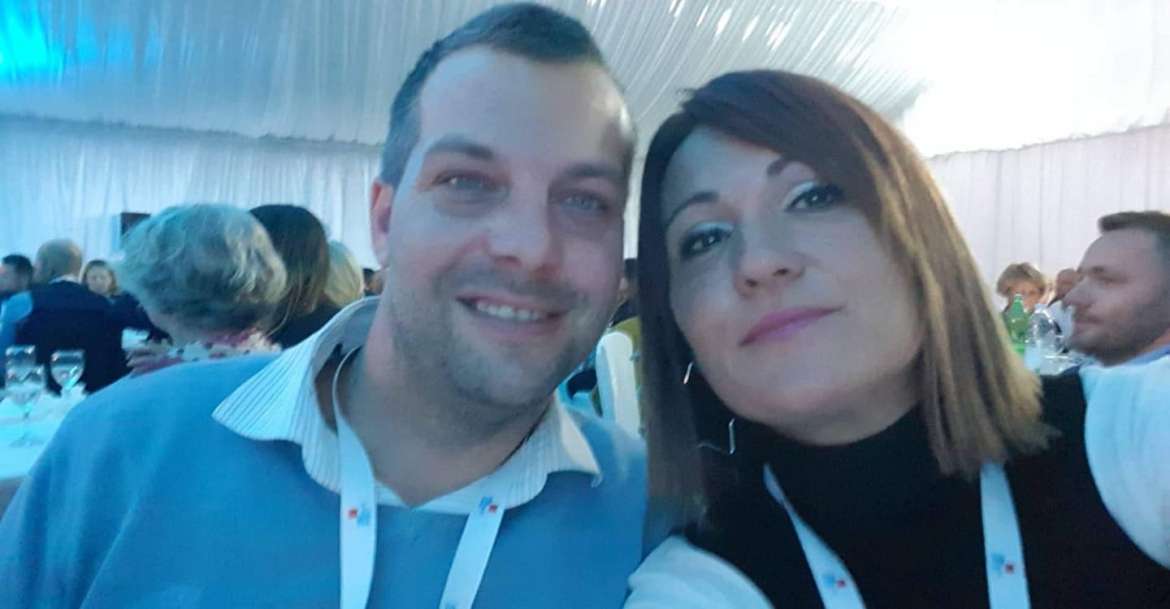
And then Goran told me that he had been planning a conference for a couple of years.
And then he went on to explain his concept. And his concept was rather good, much better than mine. All he needed was a little push to make his dream a reality - which it will be on April 2 at Forum Congress Centre in Zagreb.
Although our styles are different, TCN and HRTurizam are similar in that both portals want a better future for Croatian tourism, and looking at - and learning from - best practices elsewhere, as well as engaging in constructive criticism, are tools to get to that end. Goran would rather focus on a problem and work towards a solution, which he did to such good effect with Days of Croatian Tourism and the promotion of Slavonia.
I don't think I am revealing any State secrets when I say that there is a large disconnect between Croatia's public tourism bodies and its private businesses. And for all the potential we talk about, very little of that potential is realised. Rather than name-calling and criticising, why not accept that there are certain things that will not change and focus instead on working to change things were public and private sector can agree and move forward together? 30% change is better than zero change, and once relationships are built, who knows how much further things could progress? After all, the idea - even two years ago - that Days of Croatian Tourism could come to Slavonia was laughable.
And Goran's determination made it happen.
After that late-night dinner table conversation in Vinkovci in October, I left Goran to get on with his plans and then we met a month ago to chat about his progress.
One Day or Day One - #hrturizam was a concept that was coming along nicely. Will we keep on talking about realising the potential of Croatian tourism and one day it may happen, ot shall we make this conference Day One of meaningful change?
And this was not just a one-day conference concept. His plan was to take the discussions and agreements from the conference and put them into a transparent white paper, with road maps and timeframes on how to achieve interim goals. And then to meet at the same conference the following year to discuss progress, made, resolve issues preventing that progress, and to make a road map for the following year. And he is offering the neutral HR Turizam project to be the platform to monitor progress and effect change.
A conference which would engage stakeholders from all sides - from the openly, albeit constructively, crtiical such as myself, to the Minister of Tourism, Gari Cappelli, who has confirmed his attendance. The focus will be on positivity, looking forward, and developing strategies and initiatives together. I will be speaking, for example, on the topic - 5 Tourism Gifts Croatia is Ignoring, and How to Fix This.
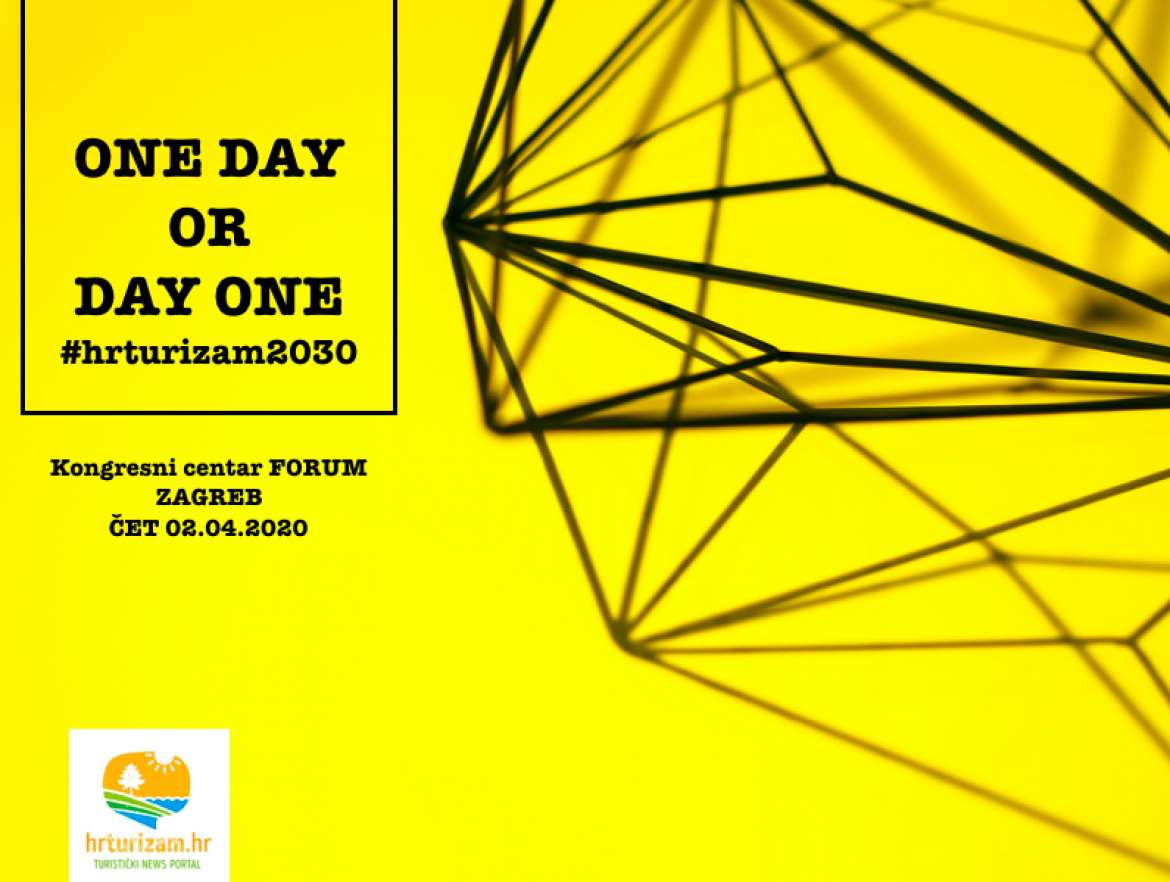
I have seen the planned list of speakers, not all of whom are confirmed, but there is a nice blend from the public and private sector. In addition to Minister Cappelli, Denis Ivosevic, Istrian Tourist Board director will be talking about the synergy between the public and private sector with brands such as BMW and Bayern Munich. The pioneer of Croatia's medical tourism industry, Ognjen Bagatin, will be presenting with Deputy Minister of Health, Mate Car, on public-private cooperation in the health tourism industry. Petra Butkovic will speak on the success of clusters in Lika, Berislav Sokac from the phenomenal Run Croatia project, and PR and branding gurus, Kresimir Macan and Bozo Skoko. There were also be keynote speeches from international tourism experts, the details of which are being finalised.
And, lest we forget the potential of Croatia's gourmet potential, a cooking show run by celebrity chef Mate Jankovic, and the wines of Croatia introduced by Sasa Spiranec, will ensure that there will be much more than just food for thought for the conference participants.
There is a quiet determination in several quarters to improve both the quality and the cohesiveness of Croatia's tourism promotion and execution, and One Day or Day One #hrturizam2030 is an outstanding opportunity to begin that journey together.
TCN will be fully supporting the conference, and we look forward to seeing you there. You can learn more about Goran's thoughts in this early announcement of the conference (Croatian version and link to HRTurizam website here).
How Learning from Estonia Could Transform Croatia in Under 5 Years
January 24, 2020 - Estonia is one of the world's leading countries in digitalisation and new technology, boasting no less than 4 unicorns, and a country transformed from an ex-Soviet republic just 28 years ago. And Croatia could easily follow suit.
I have been spending a little time with officials from Estonia in recent days, which has been a lot more fun than it may sound. And a LOT more inspiring.
It is a small country of just 1.3 million people, one of the three Baltic states which emerged from the rubble of the Soviet Union with some hard choices to make, and choices it had to make fast in order to survive.
With 92% of its trade with Russia, its economy ruined by the planned Soviet economy, the ruble worthless, industrial production falling 30% in the first two years, wages by 45% while inflation rose to 1000%, it was clear that something radical would have to be done to put the newly independent country on a stable path. To learn the whole story of how Estonia did it, I heartily recommend this brilliant explanation from former Prime Minister Mart Laar: Leading a Successful Transition: the Estonian Miracle.
And it is quite a miracle. Who could have predicted back then that in a short space of time, tiny Estonia would be a beacon of innovation and global excellence, voted the very best in the world for entrepreneurial activity, start-up friendliness, and digital health? A country with no less than four start-up unicorns (Skype, Taxify, Transferwise, and Playtech), four times more than a much bigger and developed European country like Spain. And this was a tiny country where any entrepreneurial spirit had been crushed by more than 70 years of Soviet Communist rule.
So how did they do it and - more importantly - if a tiny former Soviet republic with a ruined economy could do it, could Croatia too?
And the answer to the latter question is an emphatic YES!
And relatively easily.
With such a dire economic situation in the 1990s, the Estonian government did not have the money for a large administration, and so they decided to look at offering services digitally so that it could service citizens in some of the more remote parts of the country. There are plenty of resources online (including this video above) to explain how Estonia established itself as a digital champion, but essentially it decided to base its strategy on digitalising as many of its services as possible. Not only would this reduce costs (an estimated 2% of the value of Estonia's GDP), but it would improve the quality of life of its citizens, as well as untold efficiencies. Sort out your driving licence online, access your medical records 24/7, organise a prescription, pay taxes, even vote in elections. All done with the security of the multi-layered X-Road Data Exchange Layer, which guarantees confidentiality, integrity and interoperability between data exchange parties. Some 99% of State services are now online.
No more stamps.
No more queues.
No more offices closed due to marenda.
This is not some modern Western county, but an ex-Soviet republic which had no money and very little going for it just 28 years ago.
Of course cybersecurity is a crucial issue, one I discussed yesterday with Uku Särekanno, one of the architects of Estonia's cybersecurity strategy over coffee in Zagreb. Uku was in town for the justice ministers meeting as part of Croatia's EU Presidency in his new role on Schengen cybersecurity. Apart from explaining why the system was so secure, I was impressed that Estonia had a backup plan, in case circumstances dictated a return to paper.
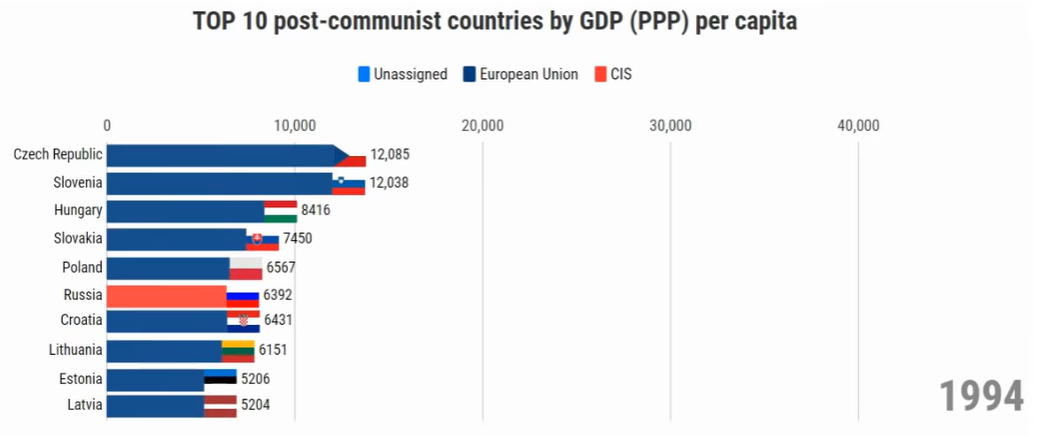
As a man who has spent more than his fair share of weeks standing in queues (often the wrong one), days on the phone here, the thought of being able to deal with so many things quickly and efficiently at a time to suit me, and without the need for leaving the house or any uhljebby contact, is appealing indeed. And if this Soviet republic can do it, why can't Croatia?
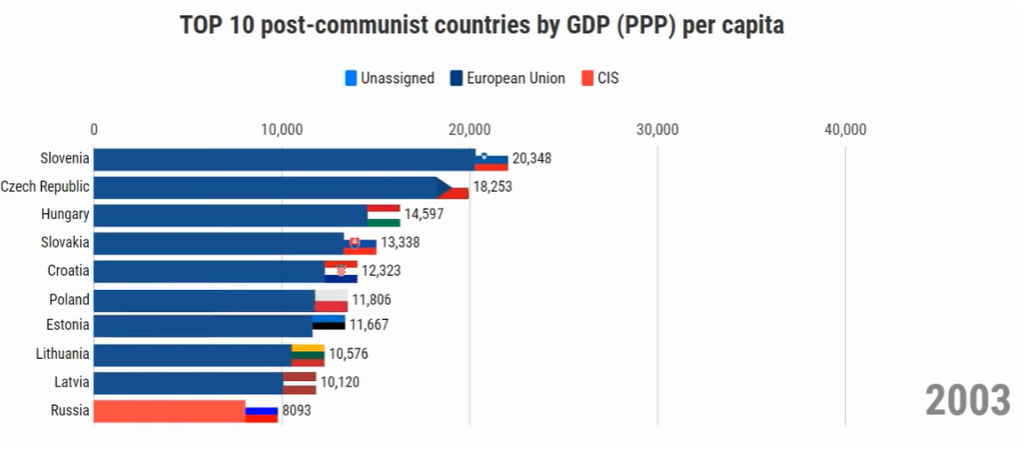
There is one major difference between Estonia succeeding and Croatia, and Estonia holds a huge advantage in this regard. Ironically, it has the Soviet Union to thank for enabling its current success to happen. Estonians were so against the old regime with independence that they were willing to trust their new government, which made the introduction of all this much easier, as residents were more trusting that their data would be protected. Given the polarised nature of Croatian society, there would have to be a different approach.
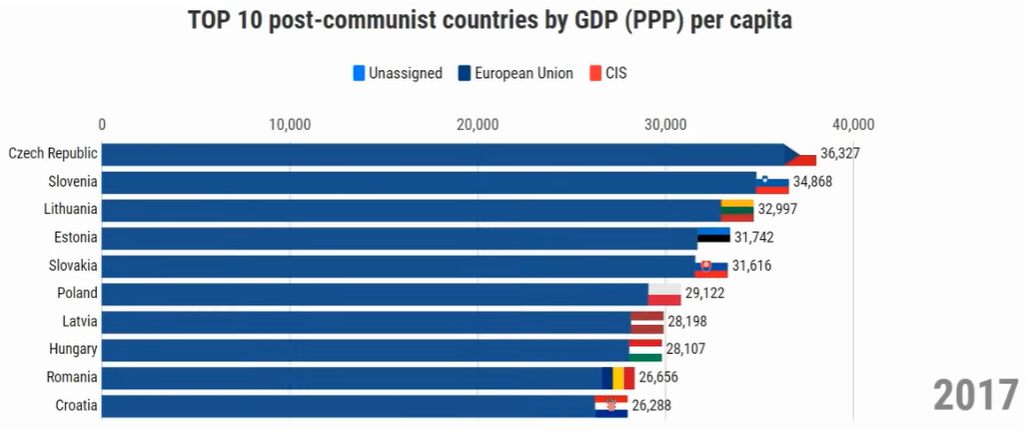
I think the most interesting approach - and one which the Estonians told me they would be happy to support with their know-how - would be to focus on and encourage the small seeds of change which are being planted in parts of the country. Seeds like the Mayor of Bjelovar, Dario Hrebak. As we have written previously on TCN, not only was Hrebak the first to introduce digitalisation into his administration, he then made transparently available all the expenditures of his administration. Having done that, he then reduced a surtax from 12% to 6%, reporting last week that far from this meaning less income for his administration, is has actually received 250,000 kuna MORE in the first 17 days of 2020.
DIgitalised services, an administration which accounts for all its spending transparently, and where less taxes generate more revenue. In Croatia. Imagine!
Now THAT is what I call a seed of change.
The Estonians think so too, and they have invited me to visit Tallinn, with any interested politicians, to see how the whole e-Estonia project works - as the leaders in Europe on this, they now have a well-polished tour. So if you are a Croatian politician and you fancy being a little less uhljebby and embracing the future, then contact me on This email address is being protected from spambots. You need JavaScript enabled to view it.
And if we can get a few towns to follow the Bjelovar lead, easing the lives of citizens, getting greater transparency, and seeing higher revenues from lower taxes, maybe - just maybe - we can encourage more Croatian citizens to stop just complaining in cafes and demand similar change from their mayors. And then...
The Estonian miracle has its roots in the digitalisation of its administration but it does not stop there. A major factor in the rise in its economic performance has been its early embracing of new technologies and emerging trends. It started using blockchain technology 9 years ago, and it is the number one place in Europe for one of the game-changers in the global economy in the coming years - the digital nomad.
When I mention digital nomads in Croatia, people often think I am referring to bloggers or influencers looking for a free hotel in exchange for some online exposure. And while bloggers and influencers are digital nomads - they work remotely from an Internet connection - they are a tiny fraction of the story. Many more are consultants, IT professionals, entrepreneurs, high net worth individuals.
The clearest example of how this works in the Croatian context was demonstrated by two digital nomads I met in Jelsa on Hvar last year. He was Russian, she was Ukrainian, and they both worked for an IT company in Munich. Their boss had told them that he only needed them physically in Munich 2 months a year, and they were free to work from home, or anywhere else, as long as they were available and online from the working hours of 09:00 to 17:00.
They decided to do a European tour of Croatia, Italy, Spain and Portugal, choosing Jelsa from April 1 to June 30. Their day started with a swim and coffee on the main square, then to work online in Munich. Lunch in a Jelsa restaurant, back online in Munich until 17:00, then off for a swim and an evening of entertainment in Jelsa.
Working in Germany, living and spending in Croatia. For three months, out of season.
There will be an estimated one billion digital nomads by 2035.
Estonia has made it incredibly easy for digital nomads to operate in Estonia, slashing red tape and allowing people to open businesses online. Recognising the considerable value that nomads bring to the economy, including how much they spend during their stay, the Estonian Government is now planning to introduce a long and short-term digital nomad visa, so that more nomads can benefit from the Estonian experience. This visa would come with conditions and requirements and would not be a free-for-all - you can learn more here.
Meanwhile in Croatia...
Let's leave bureaucracy aside for a moment. Croatia has arguably the best conditions for digital nomads to live and work in all Europe. Safety, English-language, lifestyle, accessibility, affordability, tourist destination, great food and wine, diversity, the list goes on. If it got just 3% of that 1 billion number above as the leading nomad destination in Europe, that would dwarf today's tourism numbers. And with nomads coming at different times, and for different reasons (read about the Denver nomad who is absolutely loving life in Osijek, for example), That would be 30 million people a year not coming for a week to an already crowded beach, but for a month or three, spending much more. The pressure to keep on devastating the Adriatic coast would be reduced, and perhaps we could move towards a responsible tourism strategy.
It could be a perfect, perfect scenario. Estonia on the Adriatic. A land where the young generation joked about their parents needing something called a 'pecat' to stamp all kinds of non-virtual documents A country where everything worked with minimal administration, and where the creativity and diversity of a new digital nomad generation was producing unicorn after unicorn.
And the sun shone, every day.
And now let's add in our Croatian bureaucracy. A bureaucracy where Americans cannot retire here as they cannot get permanent residency. A bureaucracy where non-EU digital nomads have constant issues with temporary residency. A bureaucracy which inflicts misery on its citizens on daily basis, and is notoriously corrupt, costly, and inefficient.
Rather than chairing the EU Presidency, Mr Prime Minister, why don't we all take a road trip to Tallinn and figure out how to get rid of all this pointless bureaucracy and encourage entrepreneurship instead? There are even EU funds to help us on the way. We always hear about how Croatia is a tiny country. Estonia is a tiny, TINY country, an ex-Soviet republic which started life 28 years ago with nothing. If they can do it, why can't we?
Read more - why Zagreb is increasingly attractive as a digital nomad destination.
President Kolinda, Corruption is Not the Only Thing That Begins in Croatian Schools
Outgoing Croatian President Kolinda Grabar-Kitarovic was in the international media this week, her topic how corruption in Croatia starts with cheating at school. It is not the only thing which starts in Croatian schools.
I don't normally delve into Croatian politics, as it is rather complex to understand for an outsider, but a recent interview with President Kolinda Grabar-Kitarovic caught my eye for other reasons.
Actually, her interviews and public utterances during a very chaotic, and ultimately unsuccessful re-election campaign have been catching my eye for weeks. Whether it was the bizarre assertion that those who died defending Vukovar during the Homeland War were happy to do so, or that - just a week before the election - President Kolinda had magically struck deals with foreign states which would bring jobs for Croatians living in Croatia for the tidy sum of 8,000 euro per month (almost ten times the average wage in Croatia), something which for some reason could only be made public a week before the election.
(President Kolinda Grabar-Kitarovic interviewed in The Guardian)
Having heard so many things coming from the presidential office in the last five years, I am still trying to figure out what President Kolinda achieved in her term of office.
Apart from becoming the first Croatian to ever touch the World Cup, of course...
The election lost, it is time for President Kolinda to cement her legacy internationally, and I was somewhat intrigued to see an interview with her in The Guardian this week entitled Croatian Corruption Starts with Cheating at School, Says President. In addition to the subject in the title, President Kolinda managed to offend the Croatian Nursing Council who issued a press release after the interview, as well as distance herself from any corruption in Croatia. While she served in the government of convicted criminal, former Prime Minister Ivo Sanader, she was - according to the article - kept away from the big decisions and had no knowledge of everything. There was no mention of the only convicted criminal who organised many of her birthday parties, or her relationship with the mayor of a large Croatian city, whose activities challenge the very notion of being innocent until proven guilty. To name but two.
But the legacy of President Kolinda is not the subject of this article, it is the notion of Croatian corruption starting in schools. While the president did not elaborate on what steps she had taken to tackle this issue during her five years in power, it got me thinking about other things that start in Croatian schools. Cheating in schools is a universal fact of life, and I don't quite follow the logic of how cheating in a Croatian school is the start of a life of corruption, when cheating in a Swiss school is not. And while it would be a bit much to expect a president to eradicate cheating in schools, efforts to address other, Croatian-made, problems in schools could have a much healthier outcome for the future of this country and its next generation.
As a foreign parent of two girls in the Croatian schooling system, I have been quite surprised by a number of things over the years. The first is how quickly kids in Croatia are conditioned politically. My youngest came out of kindergarten one day and proudly told me that 'my friend Iva is HDZ and my friend Ivan in SDP.' She had no idea what HDZ or SDP actually were, but the fact that political parties were even being mentioned by 5-year-olds was a sign of how overtly political Croatian society is - the most political of the 10 countries I have lived in.
Ask a regular British adult on the street how many politicians he or she can name, recognise and know their job title. I doubt the average number would be more than 6. We have no politics in our house and never talk about the subject at home, yet by the age of 9, my eldest knew all about the mayors of Jelsa, Split and Zagreb, Presidents Kosor, Tudjman, Mesic, Kolinda, Prime Ministers Zoki, Oreskovic, Plenky, and there is no party without young Karamarko. This Croatian media obsession with turning average politicians into rock stars is pushing them and their divisive policies into the minds of the youngest in society.
This all happens outside of school, of course, and the first time I realised what an effect schooling in Croatia could have on my kids was early in the morning of November 19, 2013. It was just after 6 am, and my eldest daughter, aged 7 and in her first year of school, came into our bedroom and woke me up. She was shaking, trembling, crying, and I had never seen her like this. I took her into the bed, kept her warm, safe and loved, then asked her what was wrong.
"I had my first nightmare, Daddy, it was horrible." As I held her tightly, I wondered what in the world could have given her a nightmare. She lived in a loving family on the safe and idyllic island of Hvar, with lots of friends at school. It made no sense.
And then I remembered the date. November 19. Which was the day after November 18. Vukovar Remembrance Day, the day that all Croatia rightly stops to commemorate the sacrifice of those who gave their lives in the brutal siege of the hero city before its fall on November 18, 1991. Did this nightmare perhaps have something to do with Vukovar and what they had learned at school?
"Yes, Daddy, it is horrible. The Serbs came with tanks and they destroyed everything, and then they took an old man and put him on this thing, and then stretched his body, and then they put cigarettes out in his eyes." And she cried again. "Some of my friends drew dead bodies, Daddy, but the teacher told them that they should not draw dead bodies." You can see her homework in the lead photo, complete with the red tick and 'Bravo' from the teacher.
Seven years old.
Let's forget about the cheating in schools for a moment, President Kolinda, what kind of society are we building where we are giving our kids and grandkids their first nightmares at the age of seven? Burdening them with the division and conflict of the past at such an early age? It is entirely right and proper that Croatian children should learn about and know of the horrors of Vukovar when the time is right, as well as pay their respects. But at the age of seven, with impressionable kids that age drawing dead bodies for homework? Is it really necessary to poison the minds of the next generation?
Vukovar is a very emotive issue in Croatian society, and I shied away from it until last year, when I decided to take part in the annual remembrance parade, as it had never really been documented in English. It was a harrowing day, but much different to how I had envisioned it. You can read my account here.
I was shocked at how the Vukovar memorial event had been hijacked for political purposes by the politicians of today, President Kolinda included. And when the national focus left the city after its annual day of remembrance, Vukovar returned to its hopeless, abandoned limbo where it has existed ever since peace came. This was perhaps not the prosperous city that those brave defenders would have been happy to die for, as the president claimed, above. Rather than scoring political points and doing nothing to help the survivors of Vukovar, here is how to honour the fallen and assist the survivors.
Cheating in schools is a global problem, and a hard one to eradicate. Giving Croatian kids nightmares from the age of seven is a very Croatian problem, caused by Croatian policies, and extremely simple to eradicate by Croatian politicians.
Now that would be a presidential legacy worth talking about.
Lessons for Croatia: Successful Tourism by Doug Lansky at CIHT 2019
Successful tourism in an age of overtourism. Leading travel guru Doug Lansky put on a very thought-provoking show at the recent Crikvenica International Health Tourism (CIHT 2019) conference in Selce last week. With plenty of lessons for Croatia (and others) to learn.
From the very first minute after taking the stage of CIHT 2019, Doug Lansky had me hooked. One of the leading (and most engaging) speakers on the global circuit (you can check out one of his TED talks below), author of books for both Lonely Planet and Rough Guides, along with a host of other stellar tourism credentials, it became clear early on from his pouring cold water on Kvarner Regions's inclusion in Lonely Planet's top 10 regions to visit in 2020, that this was going to be quite an education.
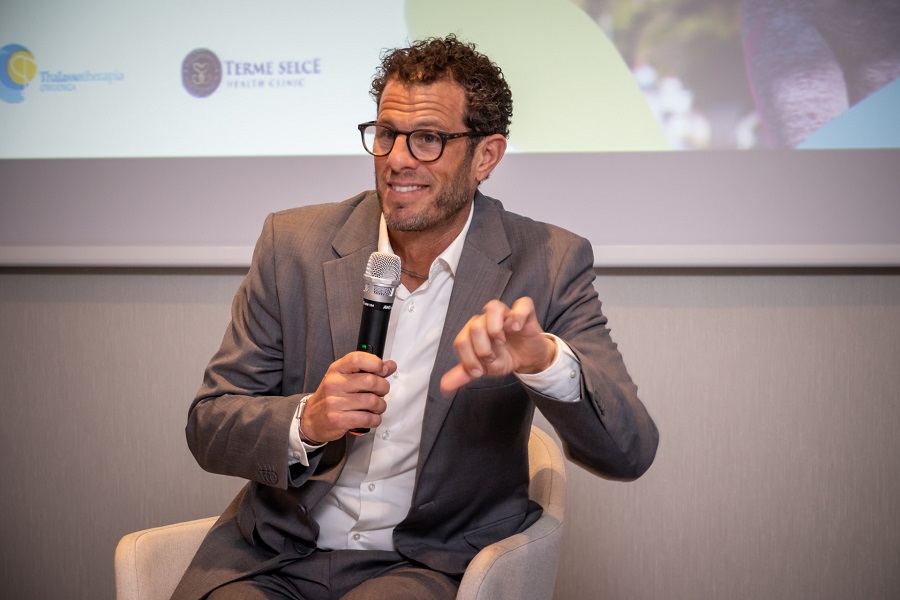
"Yes, it is nice to have, but people don't visit destinations because of lists. I know how those lists are compiled. I used to compile them back in the office for various publications. What makes people get on a plane is something altogether different."
Before we got to what made people travel, we were treated to a very detailed and entertaining explanation of what did not make people travel. Logos, slogans, websites, sponsored social media posting, lists. And food.
Yes, food.
Lansky showed us the results of a social media which was conducted to find out if there were differences between what people clicked on when they saw a sponsored post and then - via a tracking cookie installed - what they actually spent the money on when they reached the destination. The findings were amazing. Of the four tourism activities chosen for the experiment - restaurants, supper clubs, natural attractions, and tours - restaurants had the highest click-through rate (CTR) on the ad (2.9%) and the lowest actual visit (2.7%), while natural attractions had by far the lowest CTR (1.9%) but by far the most engaged results in terms of users and dollars spent (4.8%). Take-home lesson - what grabs someone's attention while browsing on the sofa is not necessarily what will be the beneficiary of an open wallet on arrival.
So if these are not the reasons people travel, what is getting them on a plane? The answer is something obvious in an increasingly globalised world.
Something different, something unique.
Lansky took us through several examples of how abroad is looking even more like home than home is these days. Just 2 Pizza Huts in New York City, but 72 in Beijing. Just 7 KFCs in The Big Apple, but 134 in the Chinese capital. No New York Wallmarts, but three in Beijing - we have even mastered how to sell the Chinese their stuff back to them, he joked.
All this got me thinking. Croatia has never been big on international franchises but how did it compare with the rest of the EU? The results were rather interesting and offered a wonderful branding opportunity of the major EU tourism destination offering something completely different.
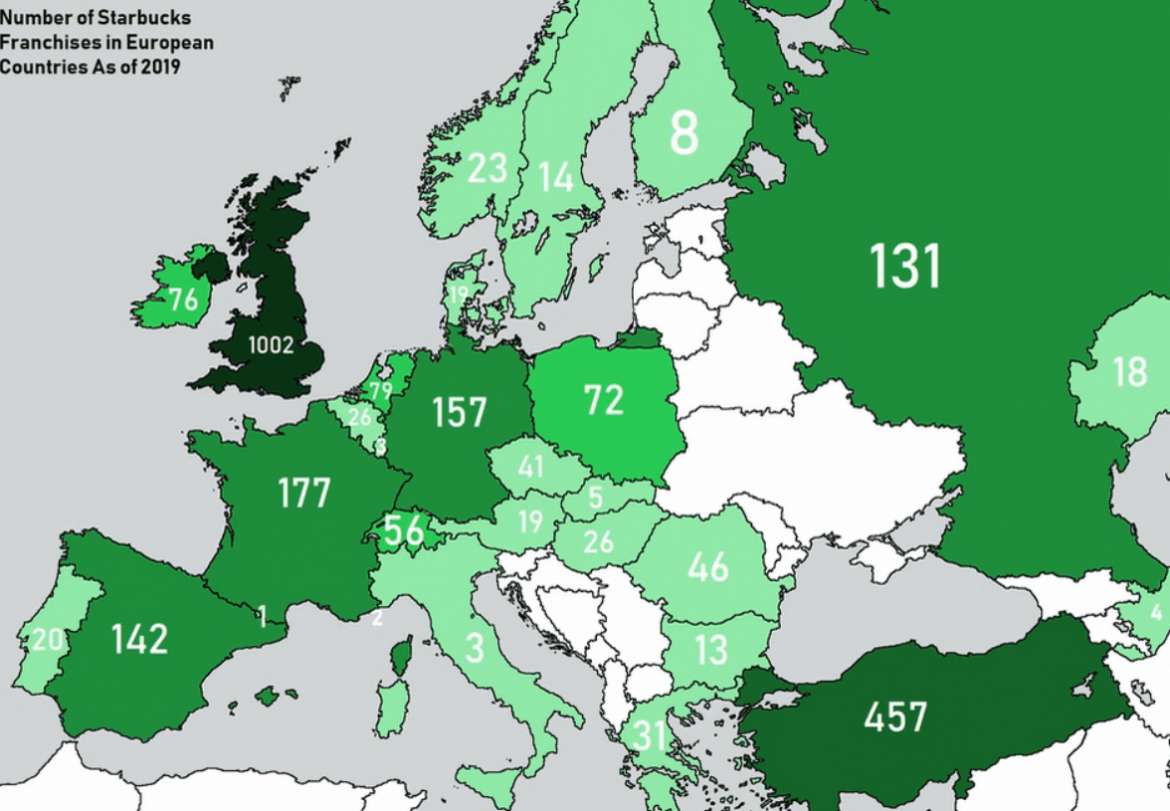
A country which can call itself the Non-Starbucks capital of the EU, the largest country in the EU (and let's not forget those 20 million tourists looking for a fix) with no Starbucks at all. One of the main reasons for that is the coffee - and coffee culture - is so strong.
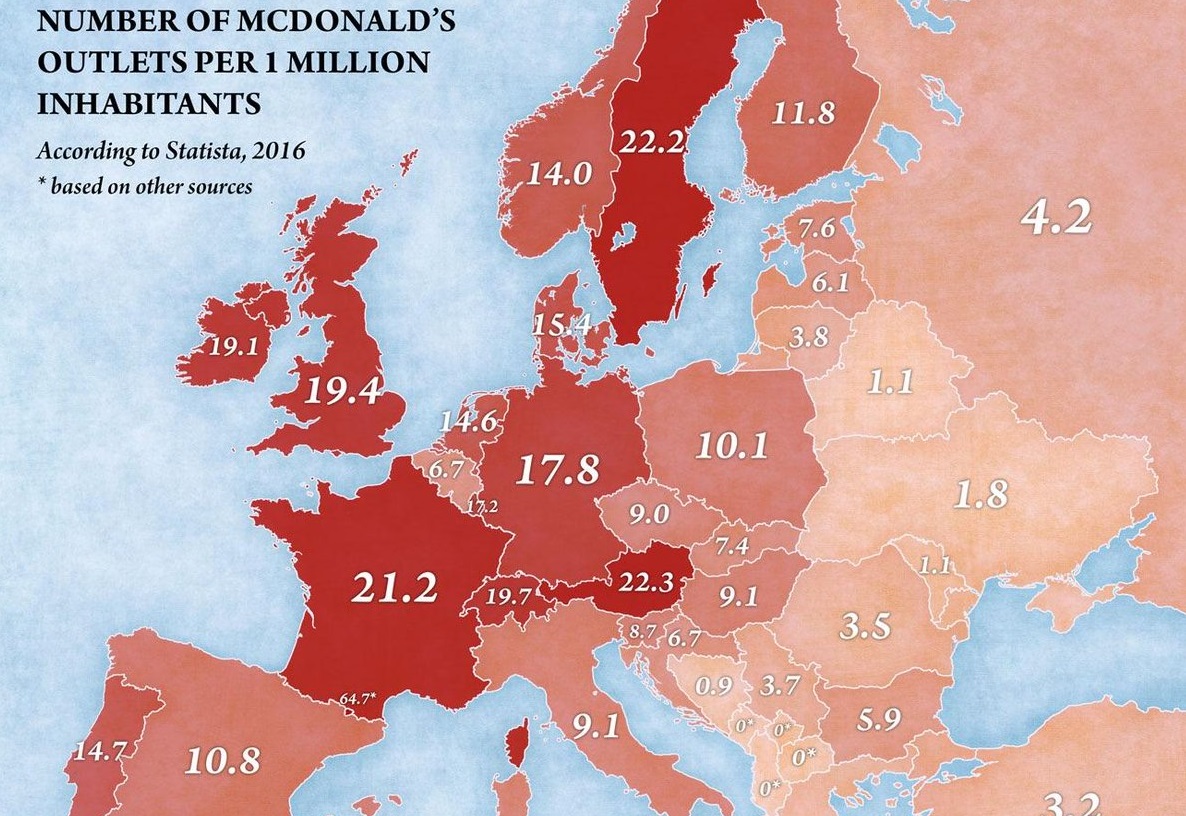
The lowest per capita density of McDonalds in the EU outside the Baltic States. The KFC situation looked encouraging - just 7 outlets compared to 224 in Poland for example.
A great niche for Croatia to develop, perhaps?
Tourists want something unique, something different
Something different like the London Eye, for example, which was a real hit and attraction when it opened. Something truly unique. And then not so unique, as Eyes started to appear in cities as far away as Shanghai, Melbourne and Singapore.
But it is the truly unique attractions which make us travel. And the very ironic thing is that those very unique things are VERY affordable and cost almost nothing. Imagine going to Paris without visiting two of its stars, the Eiffel Tower and the Louvre - combined entrance price just 20 euro. The Taj Mahal (1 euro), the Pyramids (6 euro) the Great Wall of China (7 euro), the Hermitage in St Petersburg (8 euro), the Statue of Liberty (17 euro), Edinburgh Castle (20 euro), Macchu Picchu (39 euro). Lanksy took us through 15 world-class and very unique attractions, of which Petra in Jordan was the most expensive at 60 euro - total entrance price just 290 euro all in. In his example, a tourist coming from Vancouver to Paris to see the Louvre was spending just 0.3% of the holiday budget on the thing he came to see.
All the money is made elsewhere.
Protect and develop the unique and fabulous attractions, and they will come. And word of mouth will spread about a destination with something different and well-managed, and non-sponsored social media will market that message even louder.
Unique attractions do not need to be old monuments or places of natural beauty. He cited the food court in Brooklyn, where members had to adhere to one important rule - they could not have a similar restaurant anywhere else. If they did, they were out. And so every single restaurant is a unique gourmet experience. Plane tickets for foodies.
From the ice hotel in Sweden to the competition in Scandinavia and Finland for the best offering to enjoy the Northern Lights, to random unique hits such as a restaurant with goats on the roof, it is the unique experience which is what people are searching for.
The key of course is how to manage it well.
But we are many, and will be more. Time to put a cap on CAPitalism?
But there are more and more tourists, how to stop them coming en masse? One of the things I loved about Lansky's presentation was that he presented it in such a way as you felt that everything was so obvious and that you almost came up with the idea yourself. Simple steps, sensible suggestions, eloquently delivered. Many eyes opened.
The best example of tourism development is a theme park. If the management decides to add another ride, they also add supporting facilities - another restaurant, a ticket booth, extra toilets. The theme park growth is coordinated and takes in all considerations, and so bottlenecks are avoided. Not so with tourism.
Everyone wants to squeeze into the old town of Dubrovnik, for example, but are there enough parking spaces? Toilets? And this is before we think about the cruise ships...
There are natural caps in many, many tourism-related sectors, where only a finite number of people can come. Simple examples include airplanes and hotels. But it is rare to find destinations that put a cap on tourist numbers, as that would be anti-capitalist, right? Missing out on the chance to make more money. That money-grabbing approach highlights one of the stress lines of tourism today - the alienation of the local community. Yes, we want more tourism, said Lansky, but how many in the room wanted ten buses a day parked on the street with engines running to keep the aircon going, while tourists took over the streets, cafes and peed in the bushes. Day after day after day?
But with so many people coming, how do you reduce the numbers and reduce those queues. Can you actually put a cap on tourism numbers? Some destinations are. One Italian coastal destination Lansky mentioned was overrun by tourism and the 2.5 million visitors. They shifted to a ticketing entrance system with a maximum of 1.5 million tourists. A million less tourists, a much better destination and happier locals.
I wrote something similar a few months ago about how to deal with overtourism in Dubrovnik. With so many tour buses clogging up the roads, their guests spending little to nothing on arrival, and with the wonders of modern technology, I suggested an application which controlled access to the prime attraction, the old town. If you are spending a night in Dubrovnik, you get the download code. If you, the download costs you 100 euro, which you can spend anywhere in the old town (restaurants, entrance to the walls etc). It might not be popular for those looking for a cheap walk around, but Dubrovnik has to put a cap on things somehow, as it is really not a nice experience visiting in the summer these days. You can read more of the concept here.
Looking for a tourist attraction which manages demand very well? The Harry Potter Experience in London. Massively in demand, but only available when your selected visiting time comes around. Simple. Not only no queues, but a chance for advance spending when you book other services online.
How to make guests spend more?
I really enjoyed this section, as Lansky came out with a trove of data and ideas. And most of the conclusions were simple enough that I could make them.
People like to shop, especially if you can divorce the cash from the experience. Put it on the room bill, advance shopping, casino chips, that kind of thing. More than 30% of shopping is done after 6pm apparently, so stay open!
Toilets! Lack of good toilets often sends tourists back to the hotel to use the facilities in the hotel room. And then one of the kids lies on the bed, Dad checks his email, and before you know it, destination spending opportunities are lost.
One company which understands this is 2theloo, a high-street retail services company which keeps those spenders out in town. Check out the video above - genius.
Innovative tourism to create something from nothing
Customer service is everything. Do it well and that will often be the highlight of the holiday. Do it exceptionally and innovatively, and you can transform your business. Lansky gave a great example of a hotel which was number 62 in the destination's TripAdvisor ranking. They decided to convert 4 ground-floor rooms to be pet-friendly. In order to add a little friendliness, they had a gimmick of email the pet to say that its bowl and cushions were ready, ending with a greeting like Wuff, Wuff. To the hotel's astonishment, the arriving canine guests emailed their own wuffing messages back. To such an extent that all were great friends by the time of arrival. The hotel is now completely pet-friendly in all rooms. And number one on TripAdvisor.
Another brilliant idea which cost nothing was the Overstay Hotel. Guests can stay as look as the room is not booked, so if you come for a night and there is no booking for the rest of the week, you get a free stay. While this does not actually cost the hotel very much, in addition to the marketing benefit, guests are likely to spend on ancillary services such as bar and restaurant, much more than an empty room could.
Not all the money stays in the destination
An obvious point, perhaps, but one which is often overlooked. 15% to Booking.com, 10% franchise fee to corporate head office, 4% for credit cards etc - and so much more, but Lansky also gave a great example of how tourism money seemingly comes into a community, when it actually doesn't. And he gave a great example, again.
A guy comes to a hotel and pays for the room in cash. 100 euro. The owner is grateful as he is broke and immediately gives the 100 euro to the laundry guy who has been doing the service on credit. The credit guy goes to pay his vetinary bill, and the vet then settles his outstanding bar bill. The barman pays the debt to the accountant, who immediately runs to the hotel to settle last night's hotel bill when his parents came to stay. Just as he does so, the original guests comes down and says he has changed his mind and so takes his money back and leaves.
The other money aspect which is rarely mentioned (and I have NEVER heard it mentioned in Croatia) is the cost of tourism. 20 million tourists generate 12 billion dollars or whatever the number will be this year, but has anyone ever heard a number on the utility or cleanup costs on the explosion of mass tourism. Or the environmental coast of the gradual erosion of the idyll that was the Adriatic coast 50 years ago?
So what are Croatia's top 10 unique things to see that might get people on that plane?
To conclude - as I have gone on longer than I intended - close your eyes, strip away the tourists and the mass tourists. What are the top 10 things in Croatia with that unique WOW factor or the potential WOW factor? Something that you can not or can hardly find anywhere else?
My list I am sure will be different to yours, so post yours in the comments - it could be a fun discussion. But one thing that immediately strikes me about my list is that almost all - if not all - of the 10 are either threatened by overtourism, or are hardly touched by tourism at all. The lesson being, if young Lansky is right, that Croatia and his Starbucks-free brand might be better served to have a complete rethink of how to make those unique attractions which cost almost nothing to see so amazing that all the money is spent around them.
And to consider, perhaps, that 1000 tourists a day spending 1000 euro a day is a lot better than 100,000 spending 10 euro a day...
My top 10, in no particular order
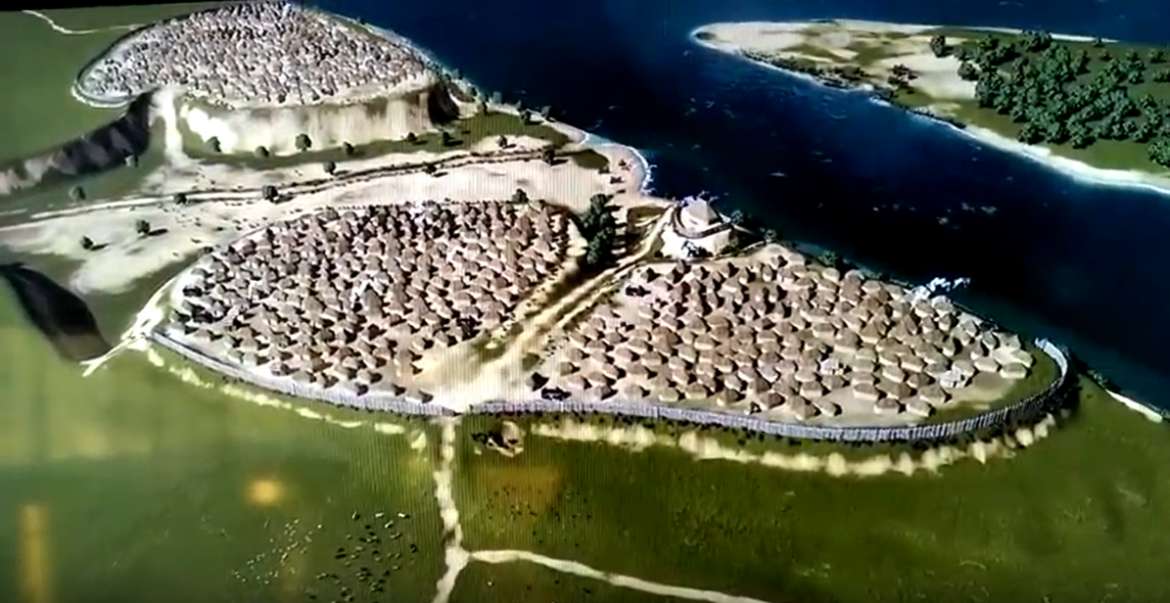
1. Dubrovnik Walls
2. Diocletian's Palace
3. Plitvice Lakes
4. Vucedol (in photo above - and an intro for those who have never heard of it)
5. Blaca and Dragon's Cave
6. Blue Cave
7. Smiljan, birthplace of Nikola Tesla (but needs to be developed - but what an opportunity with 21 million electric cars on Europe's roads by 2030)
8. Pula Arena
9. Sibenik stone fortresses and cathedral
10. Hvar Town and the Pakleni Islands
Imagine if all those where developed with the idea of preserving and keeping special the unique attractions, and then generating the cash all around.
To learn more about Doug Lansky and successful tourism, visit his official website.
For more on tourism in Croatia, follow the dedicated TCN travel section.
Why Does Croatia Have So Much Potential When Switzerland Has None?
It is fast becoming the Croatian 'P' word.
P for Potential.
Croatia has so much potential.
Croatian tourism has so much potential.
Croatian medical tourism has so much potential.
Everywhere you look, Croatia has potential, and nowhere more so than listening to government ministers and officials trying to be upbeat and justify whatever it is that they do all day. There is lots of potential, good times are just around the corner.
Golf has great potential in Croatia, for example. It is why despite having a 7-year plan back in 2013 to build 30 new golf courses by 2020 with a sum total of zero started or even close to beginning to start that Croatia hosted no less than THREE golf tourism conferences this year alone. Although nothing has happened for years, the conferences gave us a great opportunity to talk about the potential of Croatia once again.
Having spent rather more time than is perhaps healthy listening to government officials in recent months talking about the potential in sectors of Croatia's tourism, economy and other walks of life, I am coming to the conclusion that one of the biggest problems in Croatia these days is actually its potential.
For it is used as a tool to hide the fact that nothing - or nothing positive - is actually happening.
I have used the example of golf before. Let me be clear that I am not advocating the building of golf courses in Croatia. I don't know enough about the issue to decide whether or not golf tourism is a winner or sensible strategy for Croatia. But presumably the bods who run Croatian tourism are convinced as it is in their strategy in a big way.
Someone - I think Matija Babic - posted a question on Facebook some time ago asking why Croatia had so much potential when nobody ever talked about the potential of countries such as Switzerland.
The answer, of course, is that where potential for something existed in countries such as Switzerland, some entrepreneur or ministry realised that potential to improve the country. Potential was converted into something concrete that could be touched, felt, and benefited from.
Not in Croatia, for we live off potential and not concrete progress.
"One of the crucial, essential development projects is also the golf project, which has been part of the development strategy for a number of years, since 1999."
1999! In all that time only one golf course now in function has opened in Croatia. There were 30 planned in 2013, to be built by 2020, and presumably many more planned in strategic plans before that but never built. Mr. Pende is still the Assistant Minister and has so far attended no less than three golf tourism conferences in 2019 alone, where the potential of golf tourism is being lauded. 20 years of potential and nothing but potential to show for it - you wouldn't get that in Switzerland...
By chance, Assistant Minister Pende was a panel speaker at the 3rd Adriatic Health, Sport and Tourism Investment Forum in Zagreb this week, where the potential of Croatia's medical tourism industry was one of the key discussion topics. After hearing about so much potential, it was rather refreshing - and somewhat unusual - to listen to something concrete - Dr. Magdalena Rutkowska's excellent presentation on how Poland is developing its medical tourism identity using EU funds. Even more unusually for a conference in Croatia, there was time for questions to the panel from the floor. I raised my hand.
"Assistant Minister, I have lived in your country for 17 years now and have heard one word more than any other when talking about developing Croatia's future - potential. Croatian tourism has so much potential, the medical tourism industry has so much potential etc. Medical tourism has been at the heart of your 2013 - 2020 medical tourism strategy for almost 7 years now. Putting the word 'potential' aside for a moment, and having listened to the excellent and very concrete example from Poland, can you give us any similar concrete examples of projects undertaken in that time, and what were the results?"
There was a short silence, followed by words, lots of words, including liberal use of the 'P' word, but no concrete examples that I or other delegates noticed when I asked others for their interpretations afterwards.
But there is lots of potential.
I am coming to the conclusion that one of the things that is slowly killing Croatia is its extraordinary potential. And I invite you to join me in a little experiment. The next time you hear someone talking about Croatia's potential in something, challenge them (and yourself) to come up with some concrete example of something that has been done to turn that potential into something more tangible. Especially if they are a government official.
For only by stopping to hide behind Croatia's wonderful potential will we actually get to work and do something concrete.
And who knows, maybe have something in common with Switzerland and be a land of no potential.
I, for one, would welcome life without the 'P' word.
Total Croatia News Wins Medical Tourism Media Award in Malaysia
August 23, 2019 - The inaugural Medical Travel Media Awards took place at the Kuala Lumpur Sheraton in Malaysia on August 22, 2019, with Total Croatia News among the award winners.
Bourdain's World-Class Wine, Food, Cheese Meets Tacky, Taco Croatian Service
August 10, 2019 - When is a taco not a taco, and some lessons to be learned about customer service in Zagreb.
One of the many things I get criticised for is that I never write negative things about restaurants, and the majority of my writing about gastronomy in Croatia is extremely positive. There are a few reasons for this.
Firstly, I don't believe in spreading negativity for the sake of negativity, and one of the reasons TripAdvisor exists is so that people can vent their dissatisfaction. Secondly, I like to celebrate Croatian gourmet excellence where I can, especially giving the little guy a little more exposure - the fabulous vegan and gluten-free menu of Lucullus in Hvar Town or the traditional yet innovative Zbondini in Velo Grablje are recent examples of this. And thirdly, as a naturalised local, I have a better grasp of where to eat and where to avoid, and so my exposure to bad food choices is a lot more limited in Croatia than it would be to the visiting tourist.
But the subject of the quality of restaurant food and of restaurant service is something I encounter on a daily basis online and in person, perhaps more so this year than previously. Higher prices, average food and disinterested waiters are things which I am encountering more and more with the many people I engage with and follow.
All agree on the huge potential of Croatia's goumet tourism, which was perhaps given its biggest ever endorsement by the late, great Anthony Bourdain back in 2011, when he spoke of Croatia's 'world-class food, world-class wine, world-class cheese.' It was certainly a great launching pad to develop the niche of gourmet tourism, which has a much longer and higher-spending season that summer on the beach.
And while most of us mere mortals cannot afford to eat in the places frequented by Bourdain, Croatia can develop its image as a destination with good quality food, dishes and service simply by delivering menus and restaurant experiences with those ingredients at the core, whatever the actual budget.
Sadly this is happening less and less listening to many people I meet. And the perception is growing that although Croatia has a GREAT gourmet story, what many of its restaurants are delivering average food at a high price with poor service.
It really shouldn't be that way, especially in a country which lives off tourism.
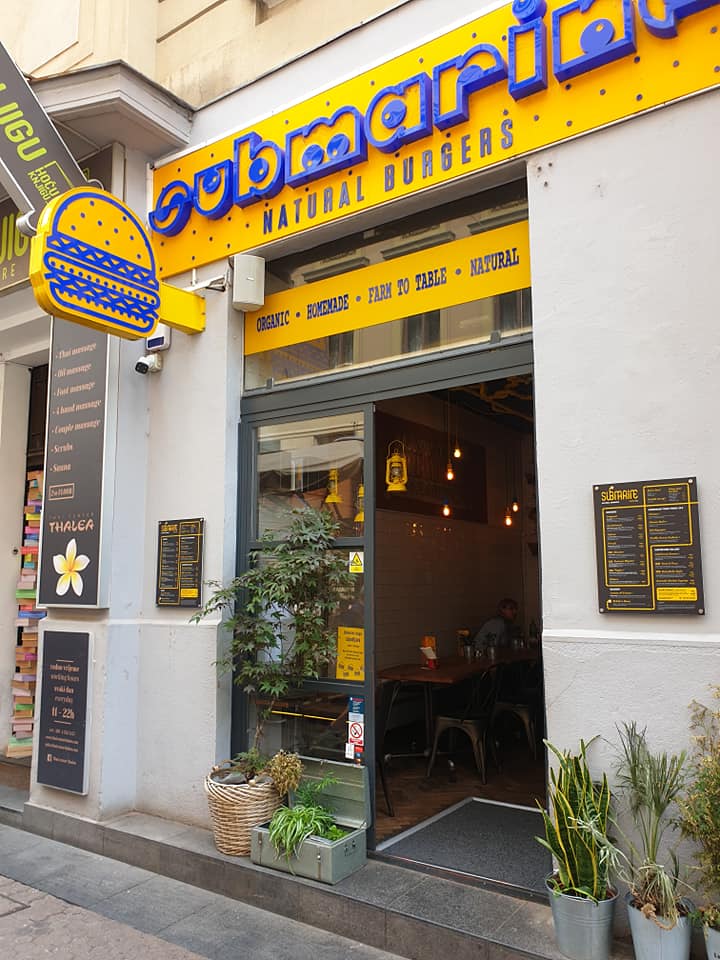
An article on this subject has been formulating in the back of my head for quite some time, but I have never really had a focus to turn it into an article.
Until I went for lunch (or thought I went for lunch) at Submarine in Bogoviceva in central Zagreb a few days ago. Originally known as the Yellow Submarine until a British lawyer representing the interests of those Beatles chaps ensured a change of name in 2015, Submarine is a popular place with a specialty in burgers. At its entrance, it promises organic, homemade, farm to table, natural products.
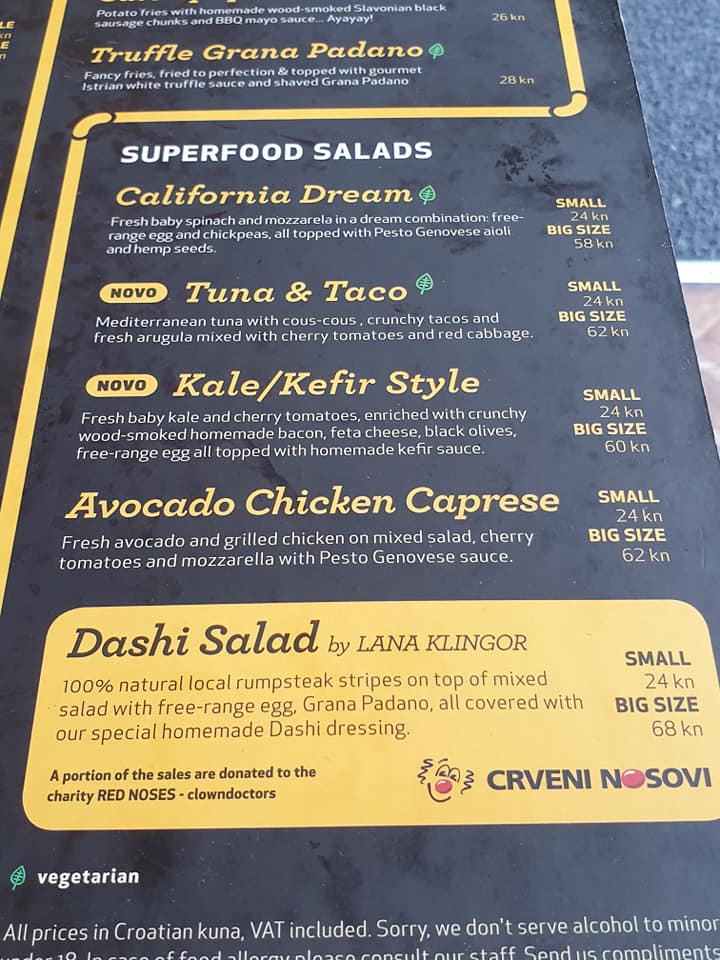
I wasn't in the mood for a burger, but the idea of a tuna taco sounded very appetising indeed. Tuna & Taco, Mediterranean tuna with couscous, crunchy tacos and fresh arugula, mixed with cherry tomatoes and red cabbage. It sounded great and I ordered the large Tuna & Taco along with a drink.

What was I expecting? A tuna taco, or perhaps mini tacos - something like this, perhaps.
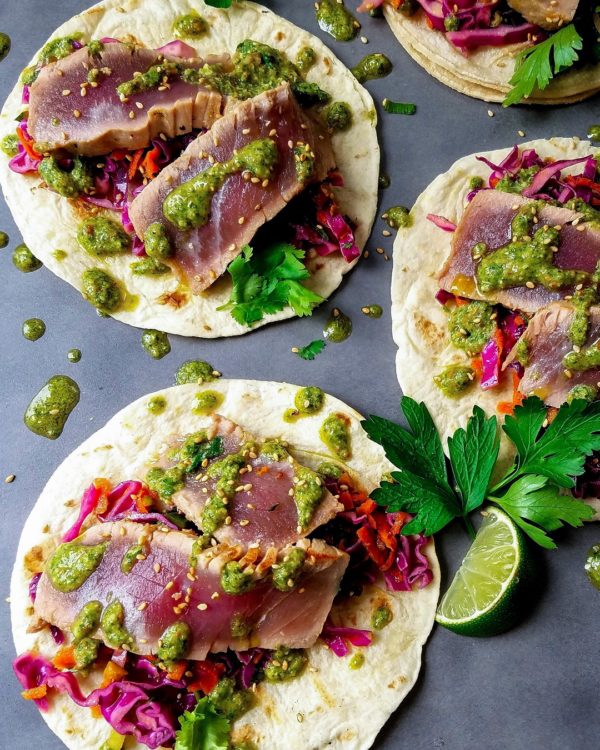
Or this maybe.
And what did I get?
Once the waiter placed the dish in front of me, I stared at it for some time. What in the world was that?!?
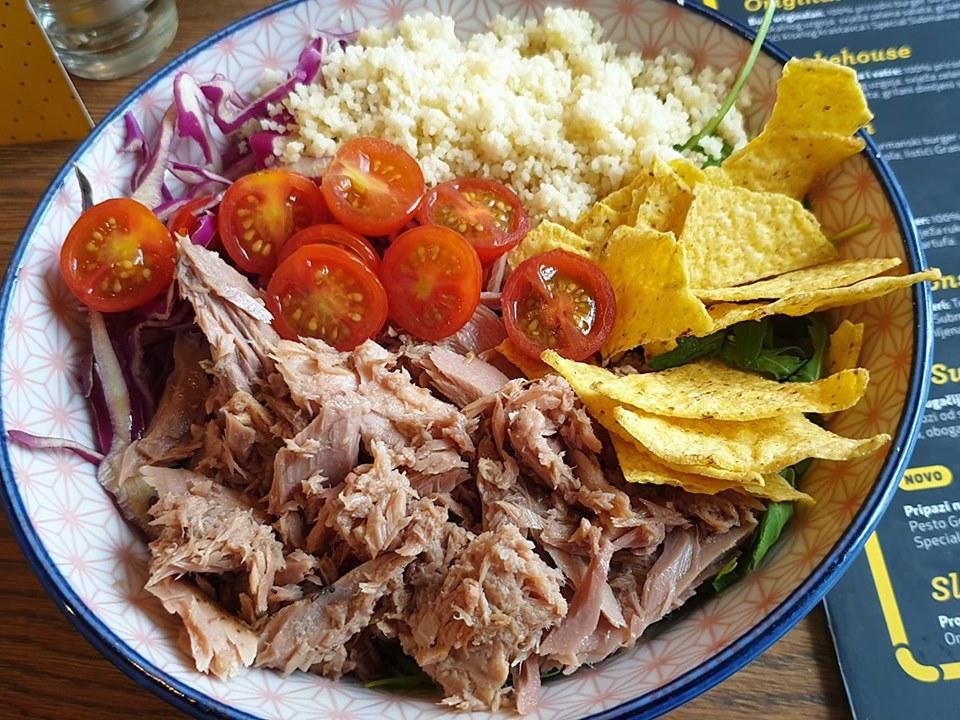
What looked like a can of tuna, a few sliced cherry tomatoes, some couscous and a few tortilla chips on a bed of red cabbage.
Maybe I was missing something, but where was the taco?
Despite the fact that I write a lot about food in Croatia, I am not really a foodie, and I often rely on others to help me with the understanding of dishes and terminology. Maybe my understanding of what a taco was was incorrect. So I asked my Facebook buddies.
I called over the waiter to confirm that this was the Tuna & Taco, which he confirmed. When I pointed out that this was not a taco, I was told that this is what they call it and this is how they prepare it. It is not the waiter's decision on how things are prepared or advertised, and no, there was no supervisor or management person I could speak to.
Ordinarily I might just have paid for the drink (I did not touch the meal), but that article in my head now had a focus. I decided to pursue the issue to see how customer service works in Croatia today when dealing with an unhappy customer. When I asked the waiter if he really had no number to call if the restaurant caught fire, a number of a supervisor was found and he called. After speaking to the supervisor, he repeated what he told me - that this is what they call it and that is how they make it. I would not be charged for the meal, just the drink, and so everything was fine.
Everything was not fine, and I asked to speak to the supervisor by phone if she was not available in person. I was told that the supervisor would not speak to me, but that her shift would begin at 21:00 (it was now lunchtime). I felt sorry for the waiters, who are in the front line of customer dissatisfaction and have nobody in authority to call upon to deal with unhappy customers. The waiter agreed that this was not a taco in the classic sense, but repeated that this is how it was presented and served, not a decision he could influence. When I asked if I was really the only person who had complained at the tacolessness of the taco dish, he confirmed that I wasn't.
I decided to follow up in the evening by returning to Submarine after 21:00. In the meantime, I sent a message to the Submarine Bogoviceva Facebook page, as well as an SMS to the COO of Submarine, whose number I had obtained through my media contacts. The Facebook message remains unread today (more on that later), but the COO (I have decided to omit the names of the people involved) texted back with an apology and a promise to call the next day as he was on vacation.
When I returned to Submarine about 21:50, the supervisor was not there. A phone call from the waiter confirmed she would be at 22:20, so I returned then and after 10 minutes, she arrived. I explained that I was a very unhappy customer from this morning, even more so when I was told by the waiter that she, the supervisor, refused to speak to an unhappy customer. She told me that she really didn't have time to talk as she was in a rush, but that there had been no need to talk to me as the waiter had explained everything to me, I did not pay for the meal, and they call it Tuna & Taco and serve it that way because that is the way management wants it done. She was aware it was not a classic taco and went on to describe what a real taco is like. With great accuracy.
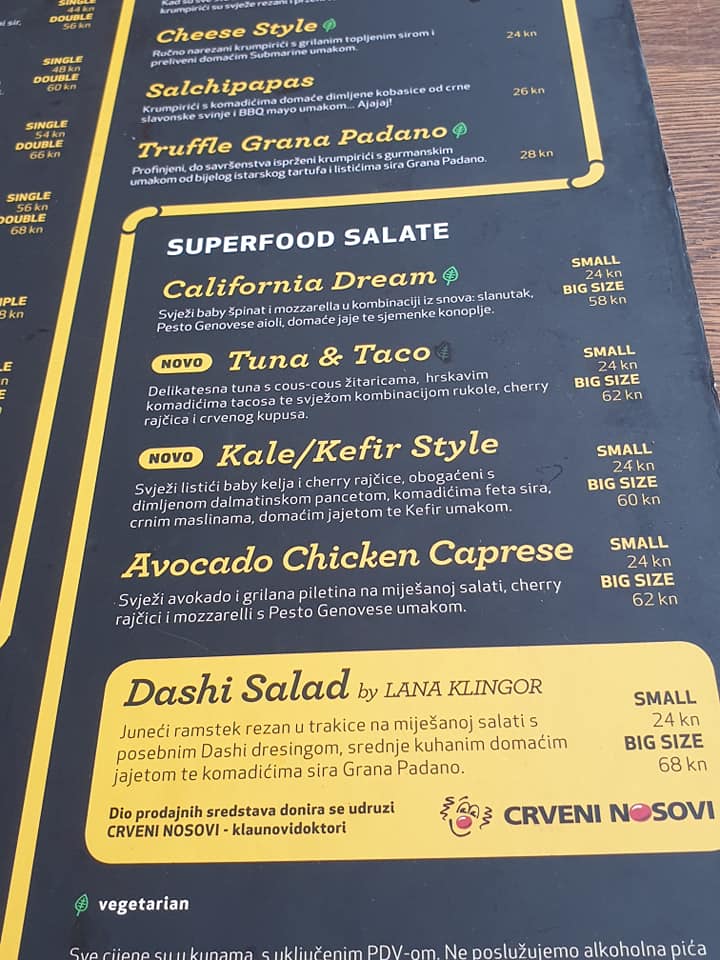
Yes, the tuna comes from a can, but it is from the Mediterranean, not the inferior quality from Vietnam.
"Can you explain why the English menu describes the tuna as Mediterranean but the Croatian version describes it as 'delikatesna' - alluding to higher quality."
"Because it is higher quality tuna."
"From a can."
"Yes."
And that, more or less, was that. She did not respond to the Facebook message because she doesn't manage the Facebook page, but I could have emailed her (she neglected to mention how I was supposed to have obtained her email). She also said I was the first person to have complained about the tuna and taco, contrary to the waiter's response to my question (and my anecdotal feedback since posting the dish on Facebook). As supervisor, she would be aware if there were any other instances.
And so to bed.
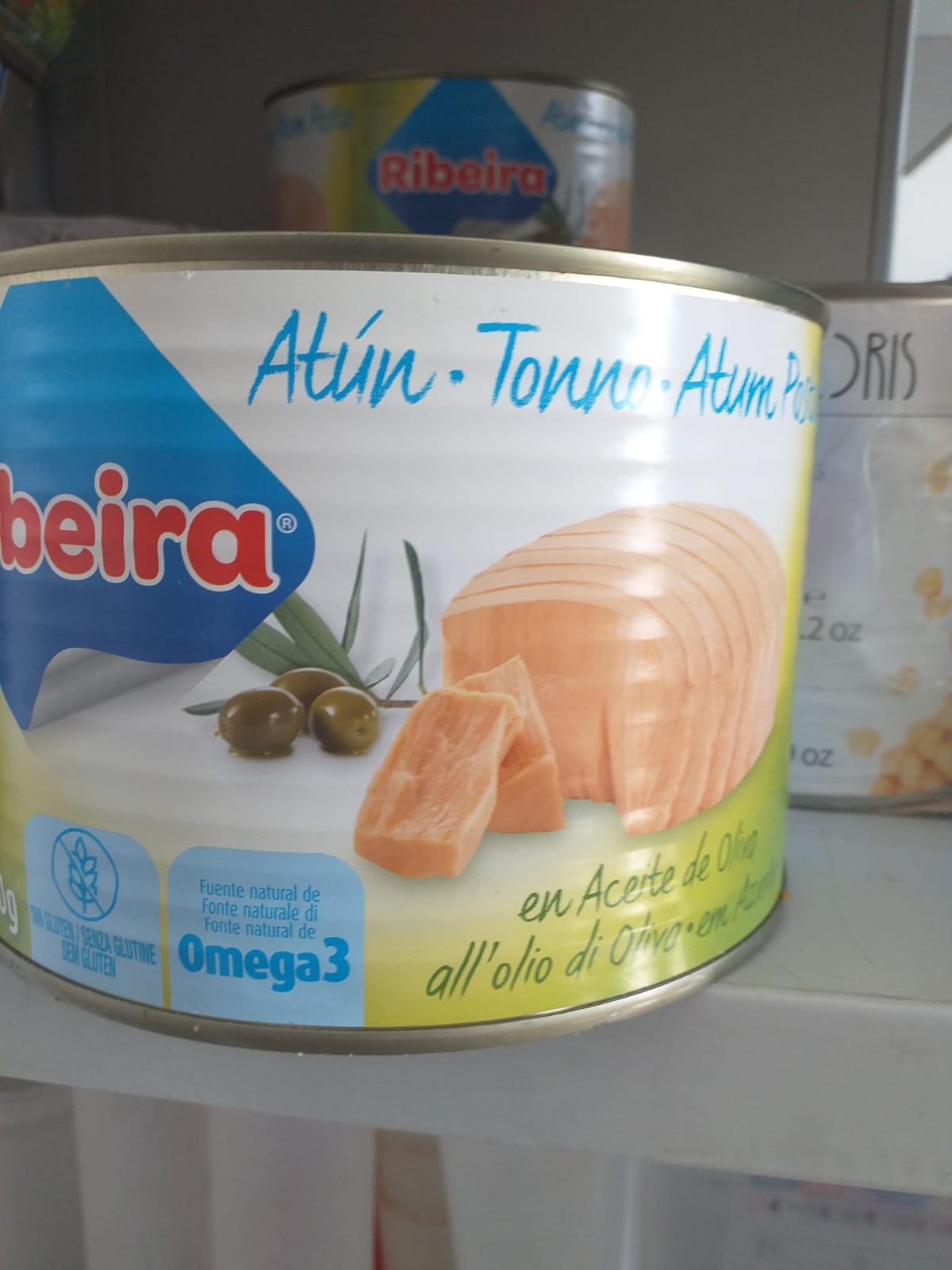
The next morning, I received a phone call. It was not from the COO but from Submarine's communications director, who must have got my number from the COO as nobody else asked for it. It was a polished performance, as he asked me to explain what the problem was, and he was a good listener.
He told me that the fact that I was a journalist made no difference - they wanted to speak to all unhappy customers. Which sounded nice, apart from the fact that the only reason he was able to communicate with this dissatisfied customer was because I had sent it to the COO. Not only did the supervisor refuse to speak to me on the phone, but nobody asked for my number so that the communications director could speak to the unhappy customer.
Like the supervisor, he assured me that I was the only person ever to complain. If someone else had complained, he would have known about it, and Submarine has very checks and balances to monitor these things.
Clearly, those checks and balances are not working.
Would the Tuna & Taco dish stay on the menu? Yes it would, although perhaps they would look at the wording. And yes, the tuna was from a can, but it was the very best Mediterranean tuna, Ribeira from Spain (he sent me the photo above).
The communications director invited me to bring my family and friends for a complimentary meal to enjoy the Submarine experience, which was gracious but I declined.
The Facebook post remains unread, as the Bogoviceva page apparently only exists to tell people where the location is.
Tourism is an increasingly competitive industry, and international travellers expect international standards.
That includes providing dishes from other cuisines which look and taste like the original dishes, as international tourists would expect to find them.
That includes have a proper complaints procedure, where someone in management is available to deal with situations, either in person or by phone. Or if they are not immediately available, that a contact number is taken so management can get back to the customer as soon as possible. To not have that in place is also very unfair on the waiters, who are generally not the best paid anyway, even without having to deal with customer complaints without backup. Submarine is certainly not the worst experience I have had in a Croatian restaurant - far from it - it just happened to be the one which focused those thoughts swirling in the back of my head all summer. Much of the above is applicable to many restaurants in the country.
Croatia has a phenomenal gourmet story to tell, from the world-class food, wine and cheese that had Bourdain raving right down to the good, honest and delicious food served in the family konoba. Great, well-priced food, served with a smile and with an engaged management to deal with issues makes SUCH a difference to the holiday experience.
While there are many exceptions, it is not something that Croatian tourism is strong on.
Why Public Shaming is Sadly the Only Way to Effect Change in Croatia
August 5, 2019 - So how do you effect change in Croatia? The case for public shaming, and how the little man can win those little victories.
They say life begins at 50. It certainly seems to be doing so for me and my writing career.
Just days after my 50th birthday, I was published for the first time in my home country - an article in The Daily Telegraph no less.
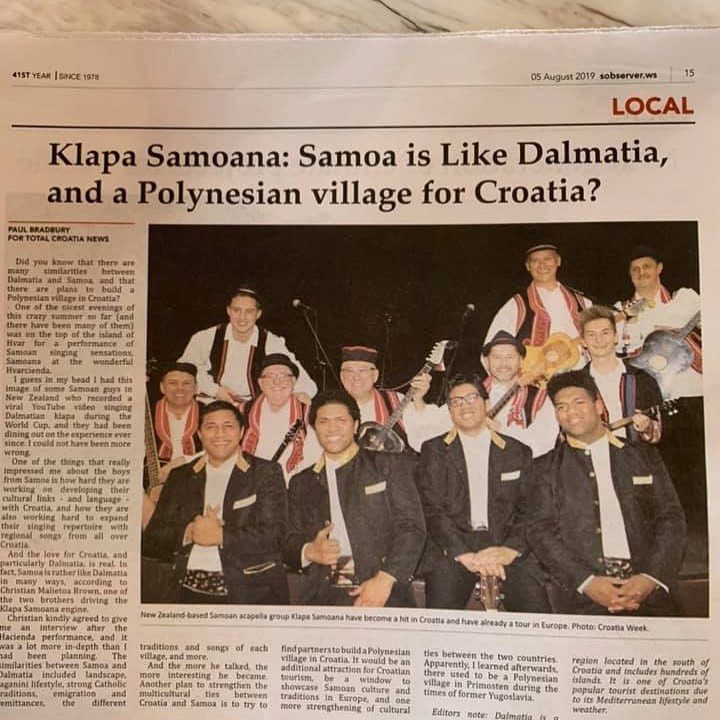
I was even published in the Samoan Observer this morning, my first article in the Pacific.
And now this. My own occasional column in Croatia's most popular news portal, Index.hr. After seeing my recent interview with Index on the Kingdom of Accidental Tourism clock up over 100,000 views and more than 5,000 likes, it was clear to me that there was no better way to reach a Croatian audience, and I was happy to agree to contribute an occasional column. Here is my first one in English, which went live on Index this morning. Thank you for the opportunity.
****
Many years ago soon after I started writing online about Croatia while living in Jelsa, the Internet stopped working at home, and we were told it would take a week to get it fixed. The joys of island life.
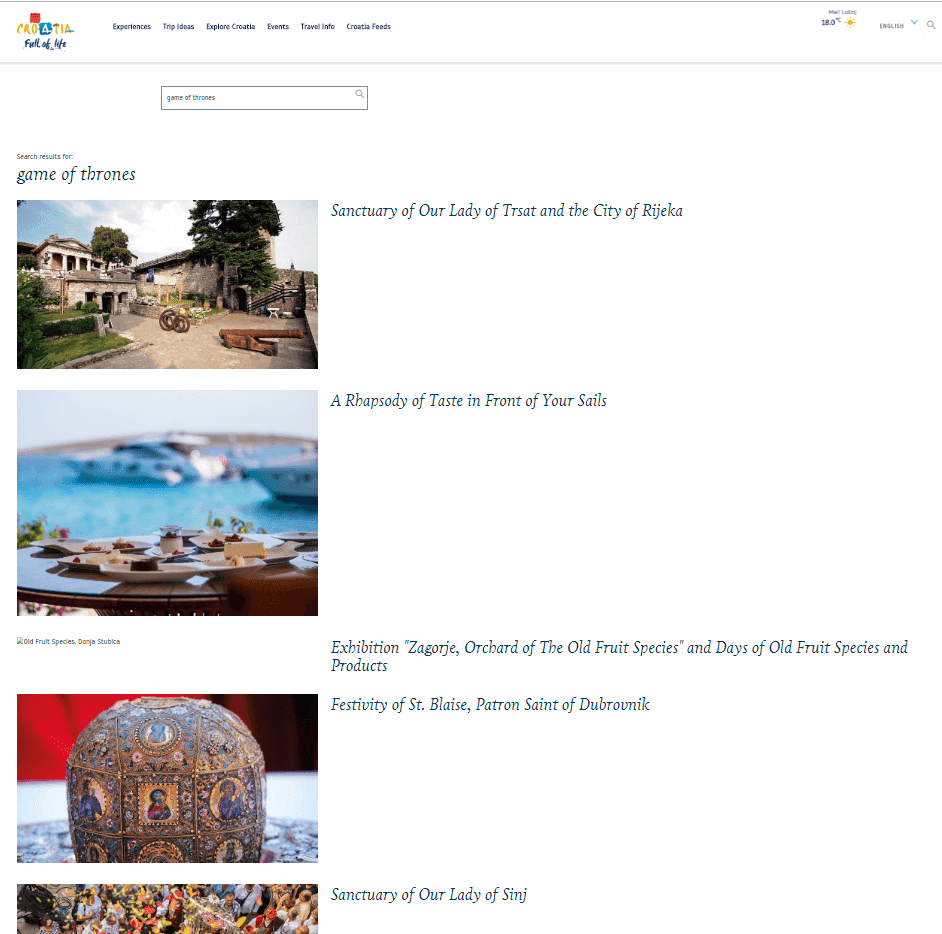
"Your search results on our website may not have resulted in the expected outcome. We are in the process of reviewing the search mechanism of the website."
Time passed. A week later, as part of a separate press enquiry, I noted that it had still not been fixed.
"No, it is still not fixed. The web department is currently working on more important issues of CNTB’s websites and it will be fixed as soon as possible."
Months passed, and our heroic IT kings must have been very busy, as nothing had changed. And then last week, Index published an interview with me, in which I pointed out the Game of Thrones searchbox issue. The interview was read by almost 100,000 people apparently, and many thanks for SO many positive messages of support. The next day, something changed.
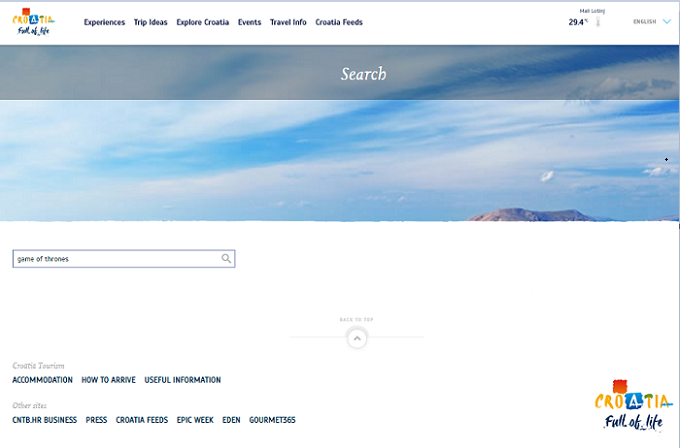
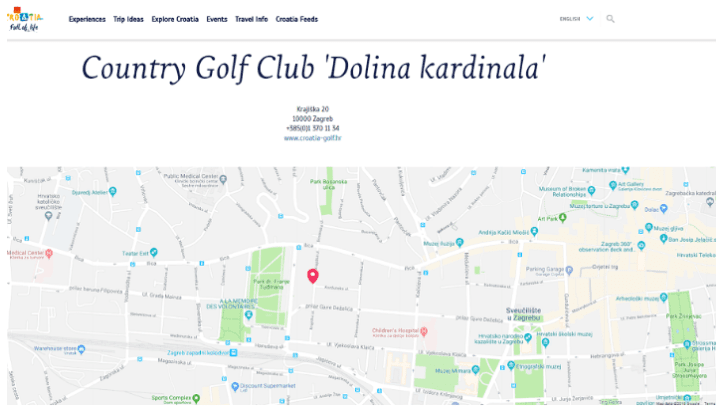
Lies, Damned Lies and Croatian Statistics Said Mark Twain, Kind Of
August 3, 2019 - A deeper look into the tourism statistics in Jelsa on Hvar points to the realities of season 2019 in Croatia beyond the headline numbers.
Statistics are such useful things. On the one hand, they can be used to track progress on things, while on the other, they can be interpreted in certain ways to fit a particular narrative.
And when - as is the case with the Croatian tourism chiefs - the powers that be decide that statistics (and their interpretation of them) will be the biggest barometer of success, then having control of public opinion of the interpretation of those statistics becomes crucial.
And so when the Ministry of Tourism decided to restrict access to the transparent, award-winning, real-time eVisitor statistics reporting system, I was not the only one who was suspicious that there was something 'going on.'
Some people think I am a tourism expert because I write a lot about Croatian tourism. I am not. I am a former male chambermaid turned wine merchant turned aid worker turned English teacher in Japan turned real estate agent turned writer. My first article published online was less than 8 years ago.
My understanding of Croatian tourism is still evolving, and I - like many others - was impressed at the growth of tourism in Croatia. Record number of tourists, record overnight stays. It was all good.
Or was it?
The overtourism debate in Dubrovnik started to spill over to other places on the coast, and somewhere along the way, the charm of the Dalmatian coast (I am referring mostly to the Adriatic coast here, and would also like to point out that little of this refers to Istria) seemed to be getting lost with an ever-increasing influx of tourists on the mainland. Were all these extra tourists a good thing, and were they actually spending to compensate for the inconvenience?
There has been a growing call in recent months for cruise ships to be limited, to have a general rethink on the tourism strategy. This mass tourism strategy is not healthy, and anyway Croatia cannot really compete with the likes of Turkey, Tunisia and Egypt, who are all now back in competition after recent terror attacks. And as there is a severe lack of quality hotels, luxury tourists are looking elsewhere.
But the statistics. If statistics are the thing you have decided to be judged on, then statistics you must deliver at any cost. The quality of the tourism has become less important than the statistics. If Minister Cappelli can announce that last year's record overnights of 106 million (54 million more than in 1990) has been exceeded, then he can officially declare the season a success and a vindication of his 'strategy.'
But is it? Is judging a tourist season by its arrivals and overnight stays the way to measure success? If we all worship at the Temple of Record Overnight Stays and feed it more and more overnights to make the temple bigger, is that what we call success? Or a strategy?
Statistics. As Mark Twain famously wrote, there are lies, damned lies and statistics. Let's take a closer look.
As readers of TCN will know, I have been following the season very closely in my adopted hometown of Jelsa on Hvar this summer. I felt saddened enough by the low-quality tourism that this lovely town is now enduring, while at the same time enjoying a lovely summer - the empty Jelsa of summer 2019 is as nice as I have known it. And if you have not booked a holiday yet, then come! There are some great offers for an affordable holiday, as we will discover below.
The statistics for the 2019 season to the end of July are now finally available, so let's dive in to see how Jelsa is doing, as it seemed so empty in July. And remember, statistics can be interpreted to suit any narrative.
The first surprise in such a seemingly empty destination is that tourist arrivals are actually UP! By 1.44% compared to this time last year. Is this the World Cup dividend finally coming to light?
But then, if you wanted to write a negative narrative, you could say that the overnight stays were down 0.91%
Either way, this is a good season, isn't it? What the hell is that fat, pink Brit complaining about?
Here are the arrivals and overnight stays by country for the first 7 months. In Minister Cappelli's Kingdom of Accidental Tourism, All Overnight Stays are Equal.
As a foreign fly on the wall, I beg to differ. I think that overnight stays from countries who are also going to spend in the bars, restaurants and on tours are worth more than those bringing their own food and drink and looking for the cheapest option to have their summer holiday on the beach. But he is the minister and I am just a blogger, so what would I know.
If we look at the overnights so far, the only countries which are up are from Eastern Europe (big welcome to our friends from Ukraine, up 177%). If we look at who is down, we have Austria (-20%), Norway (-19%), UK (-12%), Italy (-14%). The higher spending East Europeans are also down (Poland and Serbia - 10%).
Not great news for the restaurants.
These are the numbers for July, the month I was documenting - while Norway was down almost 30%, Bosnia was up 12%. We will figure out why in a moment.
If we look at the hotels in Jelsa, they are having a great season - at least the main two are - 15% more arrivals than last year. Great news for Minister Cappelli's spreadsheet.
So who is staying in the hotels, and where are the biggest increases coming from? Ukraine (269% on overnight stays), Slovenia (30%) and Bosnia (20%). It is nice to see that there are 13% more Croatians in Jelsa this year - many complain that the coast is too expensive for them these days, especially islands such as Hvar. So why the big increases in the hotels from places like Bosnia and Ukraine, for example?
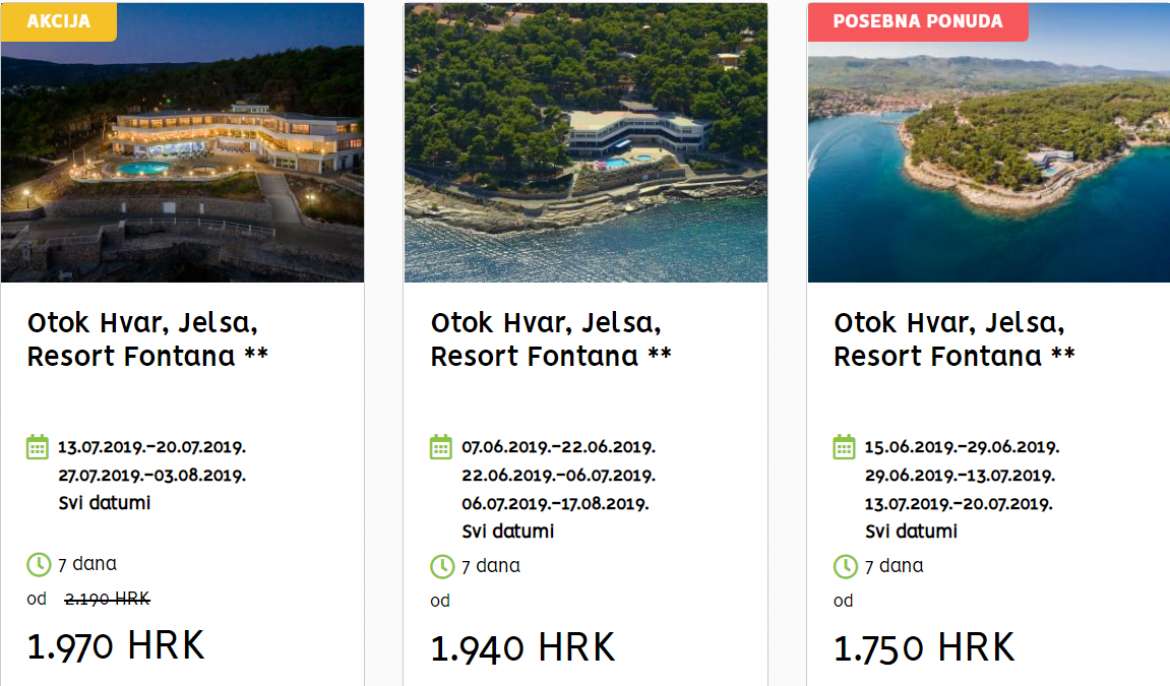
Could it be something to do with price, perhaps? An example of some of the offers for Jelsa hotels being discounted already this summer. In the cheapest offer of them all (available for the first three weeks of July), 2 adults (1,750 kuna each) and one child under 12 (free) could have a week in a hotel room close to the sea and a great beach, with breakfast and dinner, free WiFi and parking for just 3,500 kuna inclusive.
Or 166 kuna per day per person.
That includes the agency fee, taxes, running costs, and all the rest.
Expensive Hvar? Never was it so affordable! We live 100 metres from the hotel and only half-jokingly talked about moving in for a week to save money. A REALLY good value holiday, and with such an excellent beach and everything in the hotel, no need to go and spend downtown. Perhaps on an ice cream for the little one.
In Minister Cappelli's Temple of Record Overnights, All Overnights are Equal.
And just in case you are cursing yourself for missing out on such a bargain, relax. There is still time. It will cost you 39 kuna a day extra now in August, but that family of three can enjoy magical Jelsa for just 205 kuna a day. Book here. 21 more overnights for the hallowed spreadsheet.
How is it going in private accommodation? Up with East Europeans, down with Germany, Austria and Norway.
Camping has always been one of Jelsa's accommodation strong points. With several camps within walking distance of the catamaran, it is the perfect place for camping tourists to base themselves when coming to Hvar.
Not this year.
Perhaps the most surprising - and alarming - statistics are in this table.
After 108 years of tourism in the town, nobody still has any idea what Jelsa's brand is. Most people talk about it being a family destination. More a destination for old people and teenagers these days it seems, rather than young families and parents aged 25-44.
So what have we learned?
Jelsa is extremely good value, with bed, breakfast and dinner available even today from 205 kuna per person per day. Tourists from the region are taking advantage of those offers and then staying within the hotels, while the traditional higher-spending guests from places like Germany, Austria and Norway are going elsewhere, which is leaving the restaurants and the town considerably emptier.
It is the worst kind of tourism Jelsa could have, but Minister Cappelli will be able to preach from the pulpit at the Temple of Record Overnight Stays about how well Croatian tourism is doing.
Just make sure you don't ask him to explain the World Cup tourism dividend.
In this era of manipulated information, some will cry Fake News. Others will not believe something unless they see it. A quote from my recent blueprint to improve Jelsa tourism, Some Simple Steps to Improve Jelsa's 2-Star Tourism Strategy on Hvar.
I posted quite a few of these on my Facebook wall (apologies to my FB friends) because I wanted to document the reality when the inevitable will happen when the statistics are announced. We will be blinded by science and spreadsheets about numbers and overnights. Those Ukranian 21 overnights will cover up the real situation to save some ministerial embarrassment. As the hotels are filling with low-cost half-board tourists, the restaurants are complaining that the higher-spending guests, such as Norwegians, are a lot less this year. Does 21 Ukrainian half-board overnights equal 21 Norwegians in private accommodation and eating in the restaurants and drinking in the bars? For the spreadsheets, they are the same. For tourism revenue to Jelsa businesses, I would put the ratio at 21:3.
For the more visual types, a selection of videos of Jelsa's tourist season in July, shot at different times of the day. I am sure Minister Cappelli can only see packed tables and a main square Full of Life.
July 8, 2019. 19:25
July 8, 2019. 20:45
July 8, 2019. 22:00
Jelsa, 18:45, July 13
19:45, July 13
21:00, July 13
21:45, July 13
July 16, 2019, 20:35
July 16, 22:55
July 20, 12:30
July 20, 12:40
July 20, 19:10
July 20, 2019 at 21:00
July 21, 20:30
July 21, 20:40
July 21, 22:40
July 22, 19:35


